Known as the “City of Roses,” Taif is a city located on the slopes of the Hejaz Mountains in Saudi Arabia's province of Makkah. The sixth most popular city in the Kingdom, Taif enjoys moderate weather throughout the year, even in summer — making it a popular summertime destination for Saudis to escape the scorching heat typically experienced in lower-lying regions elsewhere in the Arabian Peninsula.
I always enjoy the fun and adrenaline from driving up along the winding road, along Highway 15, hugging the majestic mountain ranges leading up to Al Hada and then Taif City proper — located at 1,800 metres above sea level. My latest visit to Taif, in early April, was to experience the annual rose season. Since 2005, there's usually a large Rose Festival every year at the city's Al Rudaf Park celebrating the rose season but, due to the global pandemic, the annual event was cancelled this year.
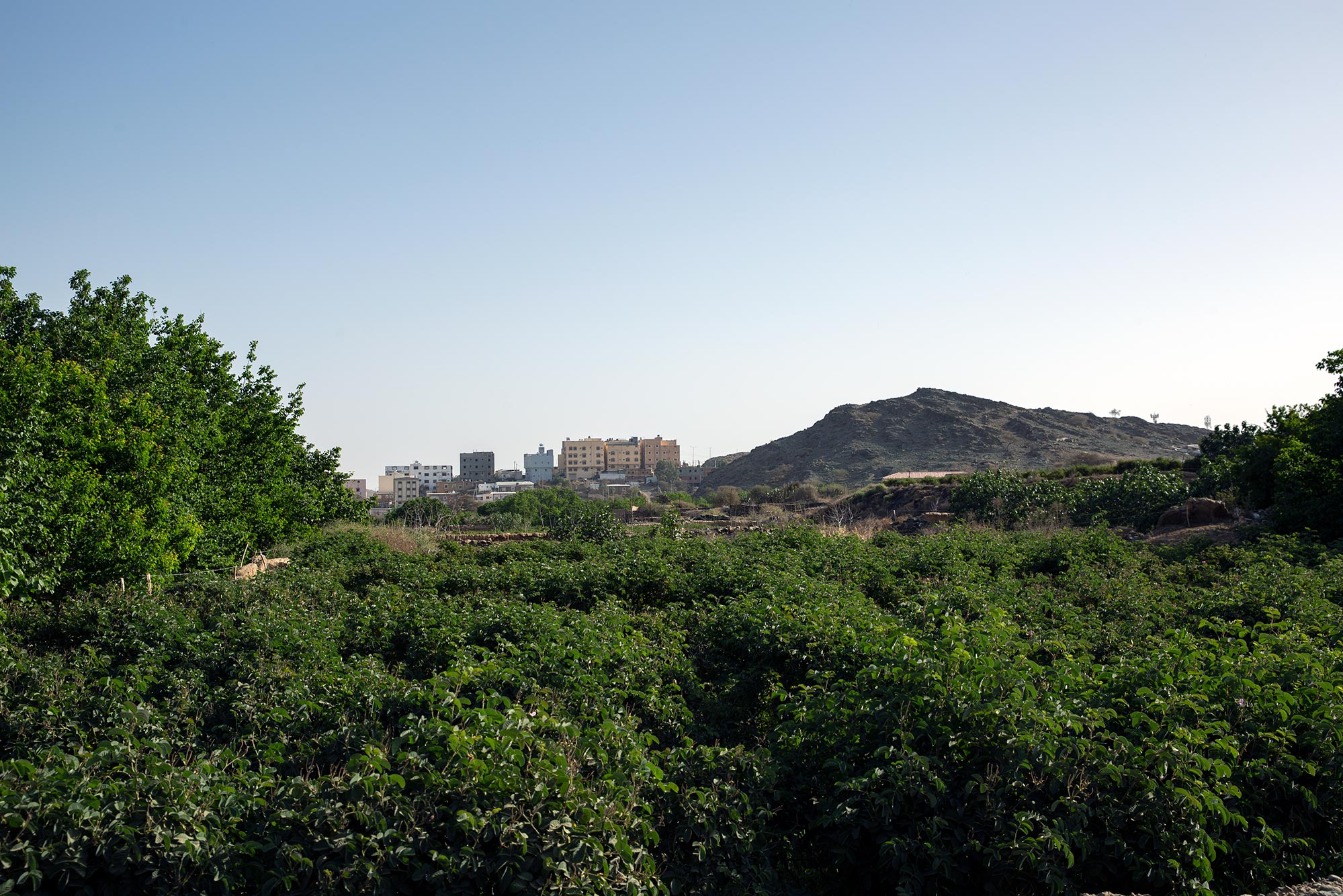
But the pandemic didn't stop Taif's entrenched and pivotal agricultural sector, best known for the cultivation of roses. The area, including the town of Al-Hada, the valley of Wadi Mahram and the Al Shafa mountains, is home to approximately 900 rose farms, collectively producing around 30 million roses during spring, and about 70 factories.
The rose season begins in early March and runs for 40 to 60 days. The Taif region's mild climate provides the ideal conditions to cultivate the renowned Taif rose. The carefully handpicked roses are then transported to rose factories that distill the petals into rose oil (attar) and rose water used to produce a range of products such as fragrances, lotions, soaps and more. The rose water is commonly used across the Gulf region in tea, coffee and food.
Visiting a family-owned rose farm
The 30-petal Taif rose — the Wardh Taifi — also known as the Jori or Damascus rose is believed to have made its way into Taif during the Ottoman Empire, around 250 years ago, from modern-day Turkey. The Damascene Jori actually traces its roots on the Arabian Peninsula back to the 16th century when the Ottoman Turks transported them from the Balkans. But the highlands of Taif ultimately proved to be the ideal setting for its cultivation.
Thanks to Taif-based local guide Khalid Sherbi, I visited a 200-year-old family-run rose farm administered by patriarch Mr. Salim and his sons Akram, Jameel and Ayman. Since 2017, they have been welcoming visitors on their farm to enjoy the experience of seeing first-hand the harvesting during the rose season.
As they welcome visitors year-round, they've also created a special plot of land where roses are grown all year, outside the primary spring season. Mr. Salim's farm also has many apricot trees under which about a dozen traditionally decorated cabins can be rented by the hour to enjoy a local breakfast, dates and Arabic tea or coffee.
Visitors can try their hand at the delicate craft of picking the roses from the bush by hand. There's a specific flick of the wrist movement required to master the art.
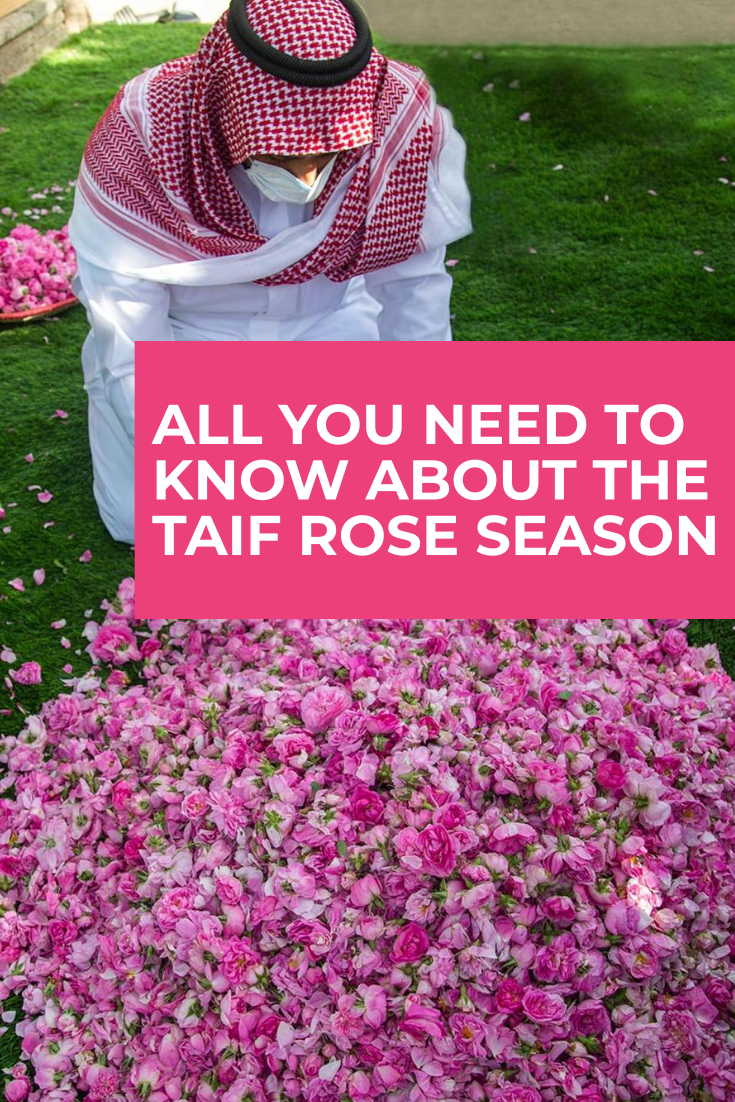
While you're stopping to smell the roses, Pin It!
It takes between 10,000 to 15,000 hand-picked roses to produce just a small 12 ml vial, or “tolah,” of rose oil. Deluxe perfume is produced from as much as 45,000 roses.
In order to maximize the extraction of the highly volatile rose oils before they evaporate under the mid-day sun, rose farm workers rise early, well before dawn, to pick the roses at the optimal time. It takes ten days for each rose to bloom fully, and timing is everything.
As I mentioned in my previous article on the agrotourism farms in the southern Jizan region, the development of these ancestral family farms into experiential tourism hubs is an important part of the Kingdom of Saudi Arabia's Vision 2030 objectives to diversify the country's economy and promote sustainability in rural tourism.
Distilling the rose essence at Al-Kamal rose factory
Also tracing their origins to the time of the Ottoman Turks, about two centuries ago, the descendants of some original rose distillers still operate the family-run Al-Kamal rose factory in Taif's nearby Al-Hada district. The Al-Kamal factory was founded in 1831 — making it the oldest in the Kingdom. The seventh-generation owner, Khalid Al-Kamal, manages the operation with his three sons.
They use techniques passed on from one generation to the next to turn the delicate rose petals grown and gathered in Taif's farms into perfumes, aromatic rose water, lotions, soaps and more.
I purchased a small tolah of rose perfume from oil essence (attar) for the equivalent of about $150 USD. Prices vary depending on the season, essence quality and size of the container. The larger container was priced at just over $400 USD. Most of the lotions and soaps are priced at around $10 USD. An on-site café also offers rose tea.
Packed in large multicoloured cloth sacks and baskets, the Wardh Taifi (Taif roses) are sorted and weighed upon their arrival at the rose factory before being distilled in large copper alembic pots.
Attar and rose water are produced by filling those large tin-lined copper pots with thousands of roses. The images below capture a worker from the Al-Kamal factory transporting bags full of rose petals which he methodically filled the copper pots with. The copper boilers are then filled with water, and the mixture is left to simmer for several hours.
Equipped with over 120 distillation pots, the Al-Kamal rose factory uses a process of steam distillation, using gas to heat the pots, to release the essential oil into vapour form. The steam collects under the mushroom-shaped helmet fitted above the boiler. A downward-angled tube then directs the steam through a zing cooling tank, and the distillate condenses are thereafter collected into large glass containers. The separation process between the rose water and attar then begins. The rose fragrant oil extract ends up floating on top of the rose water surface.
As a reminder of how their forebearers worked with more modest means, a small restricted area in the Al-Kamal factory conserves some original copper pots, along with the wood burners of olden days, as museum pieces.

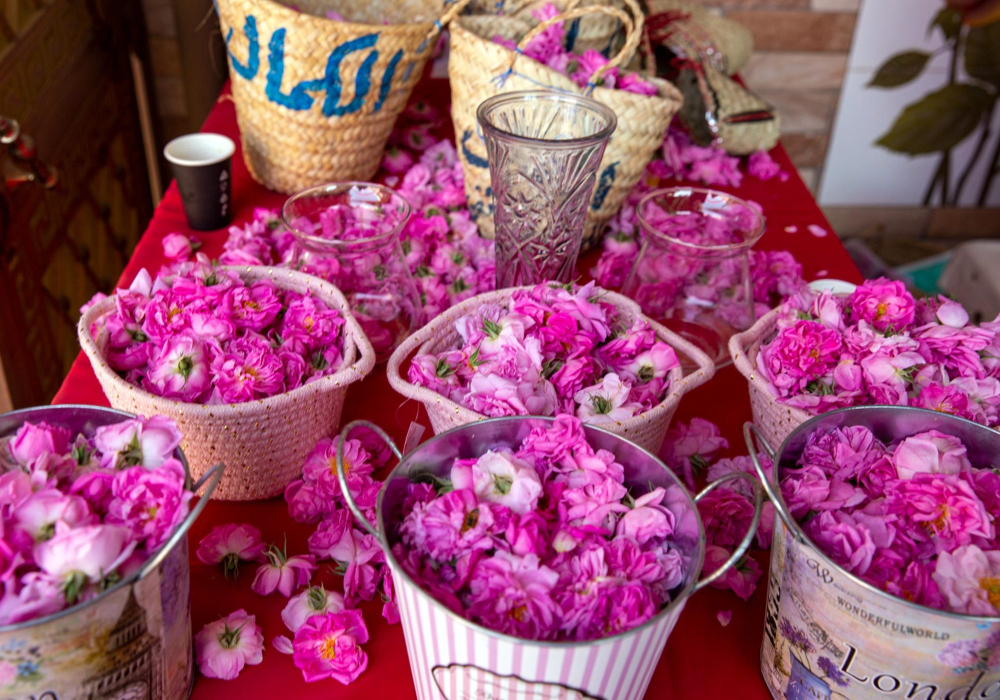
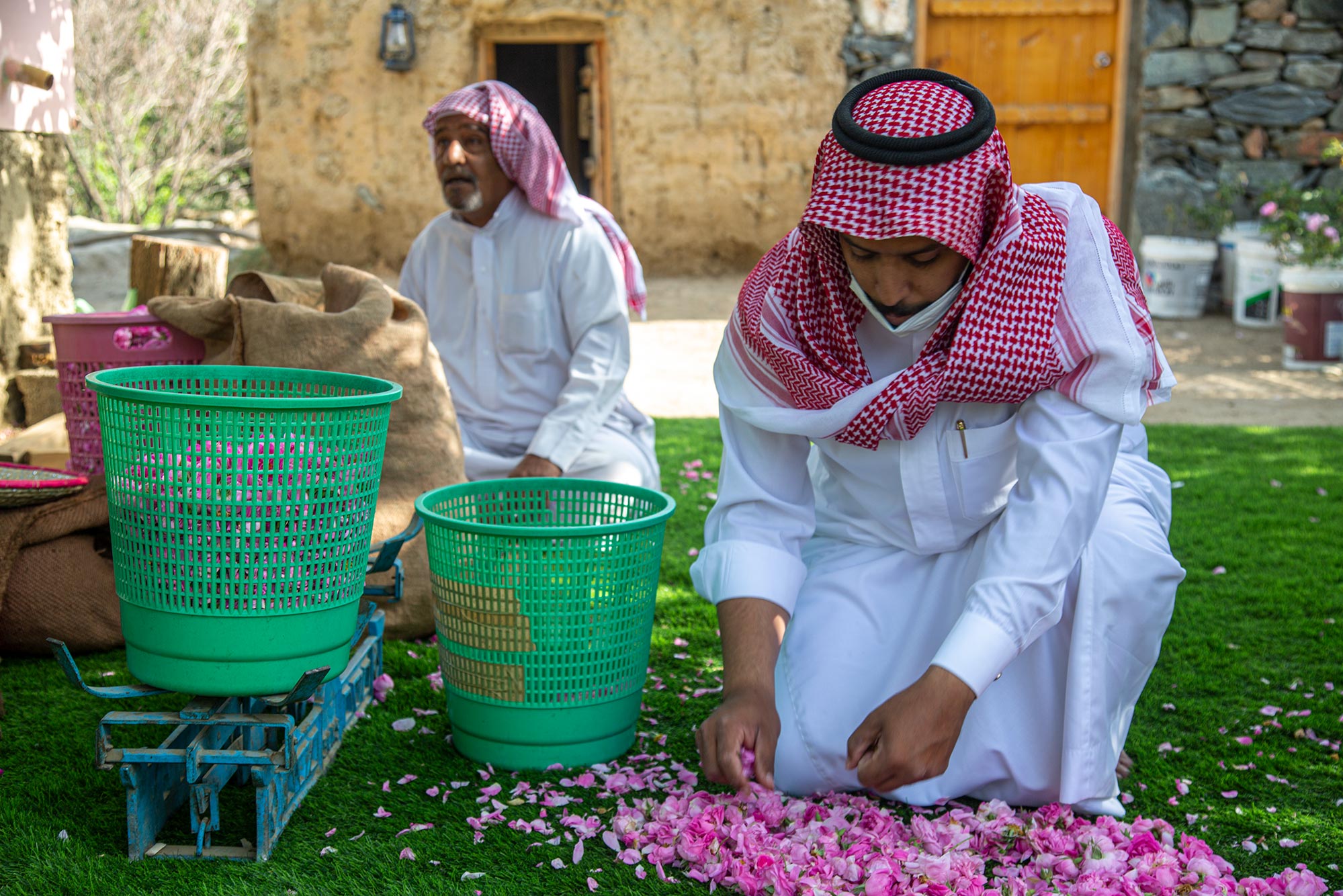
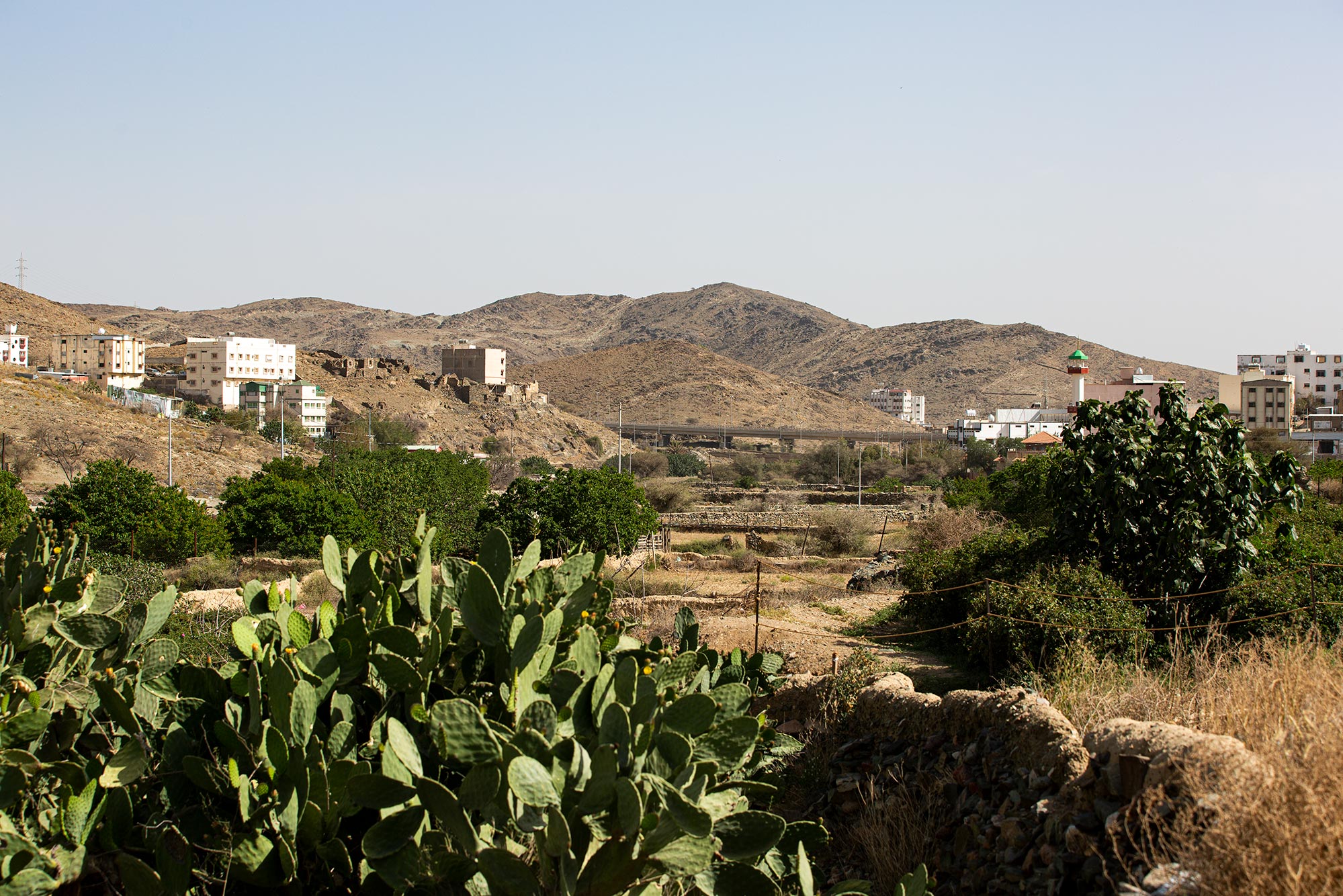
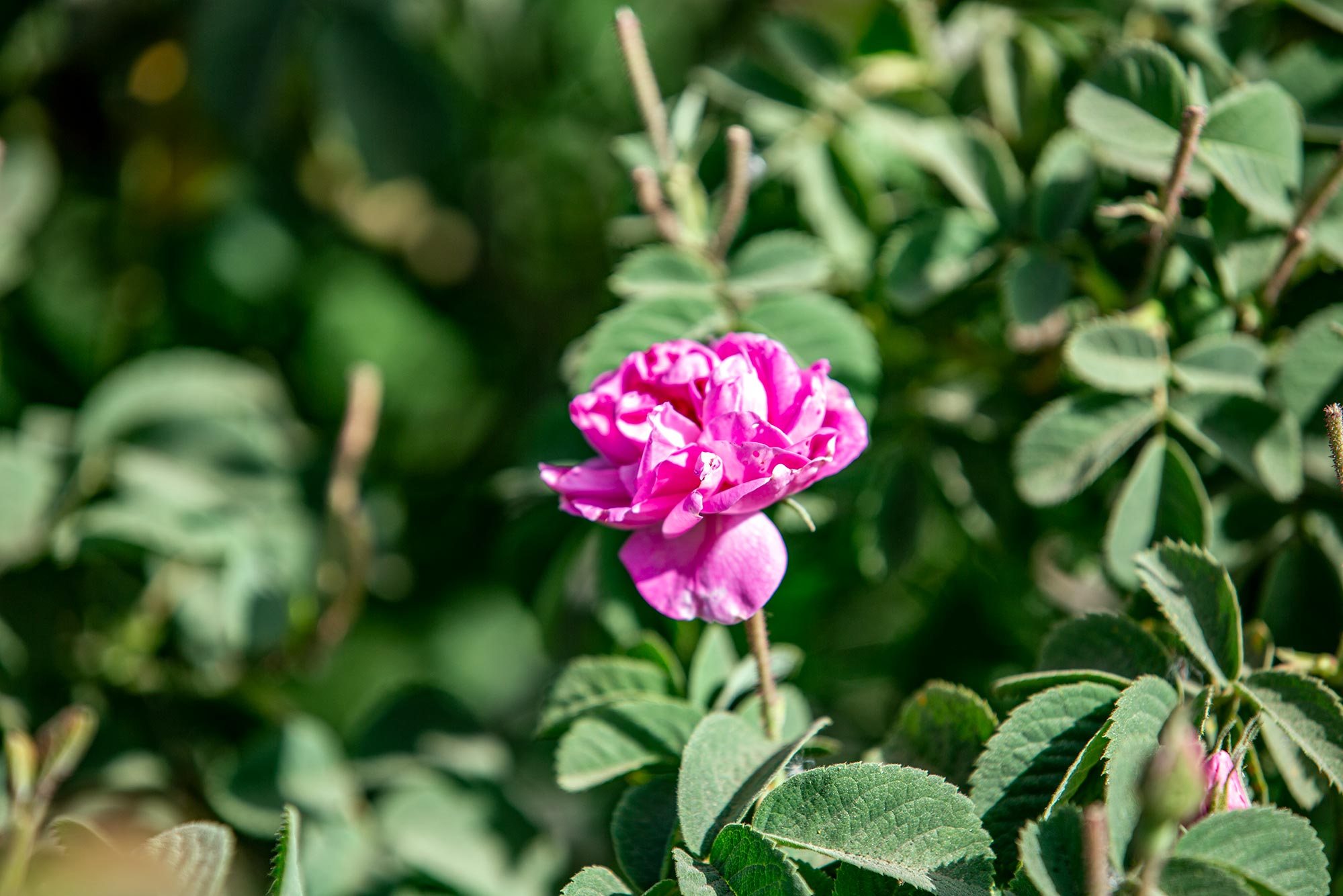
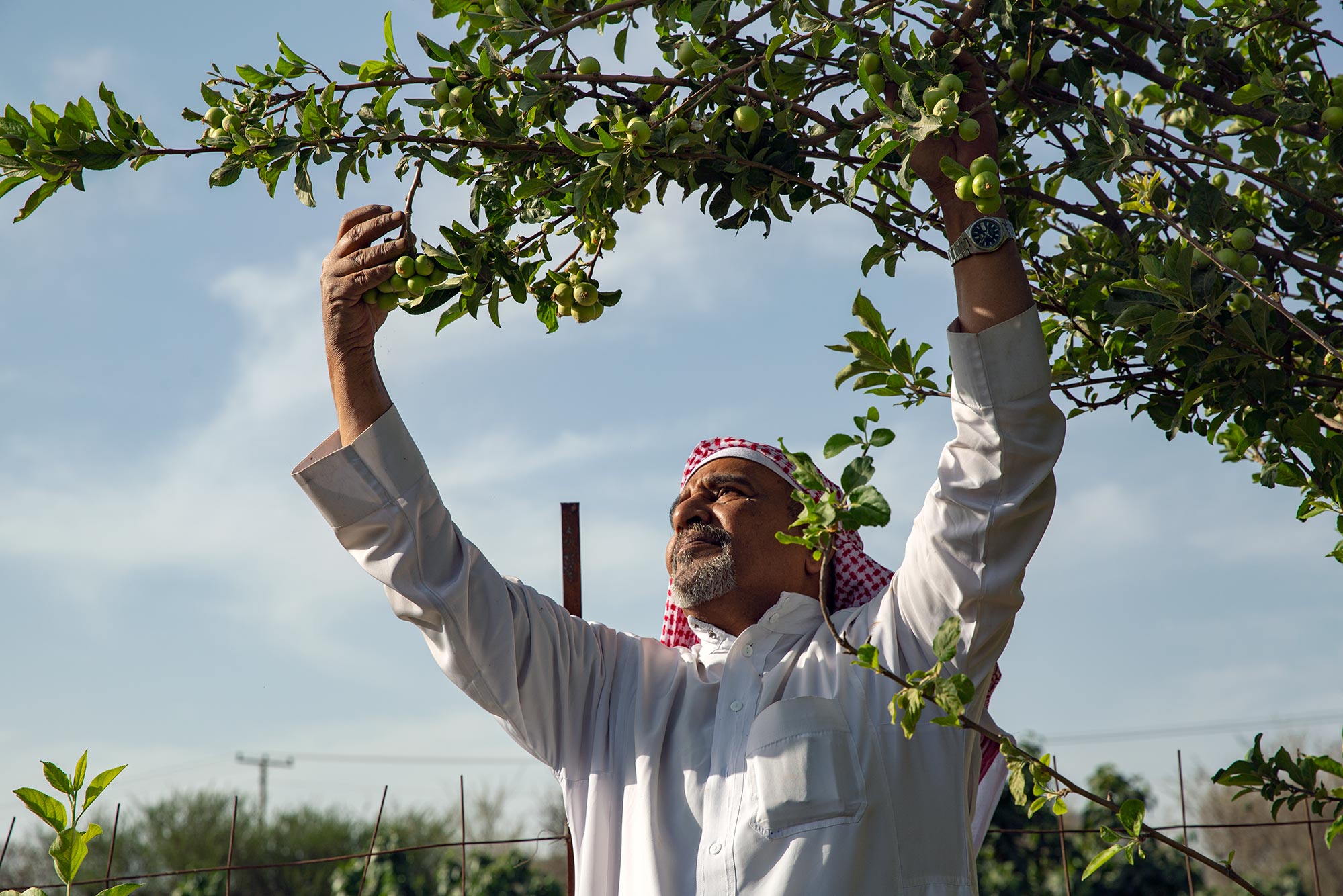
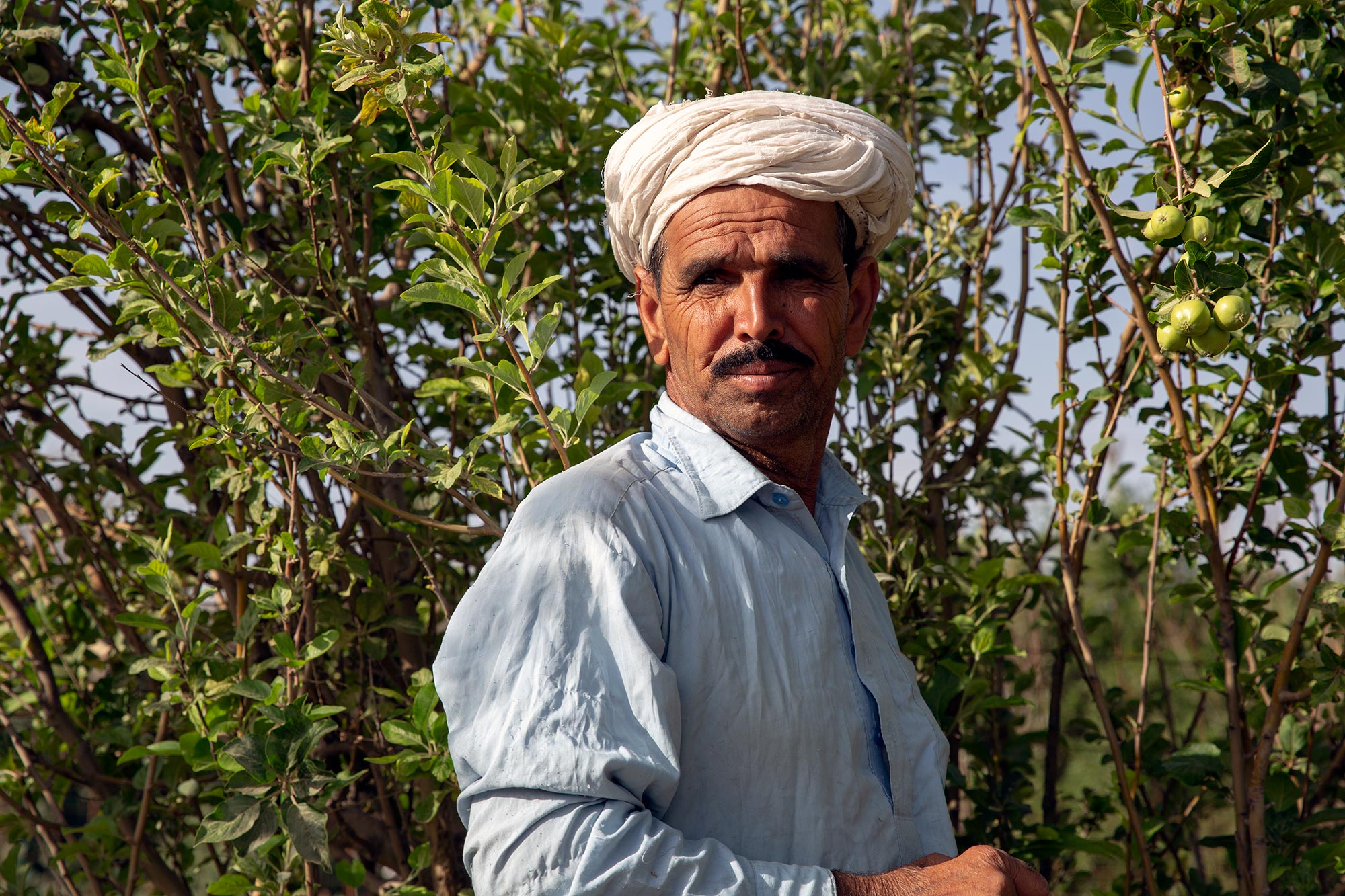
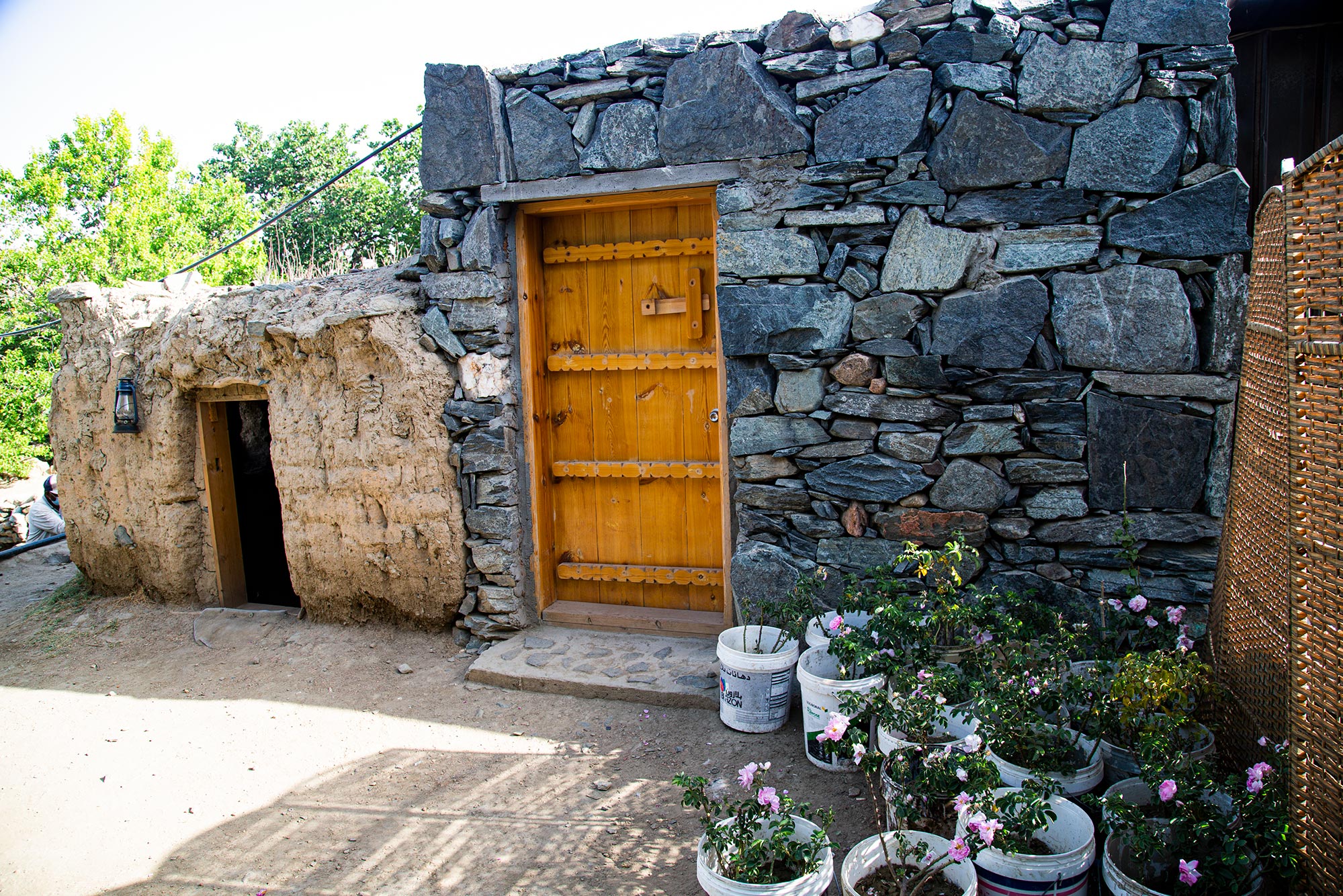
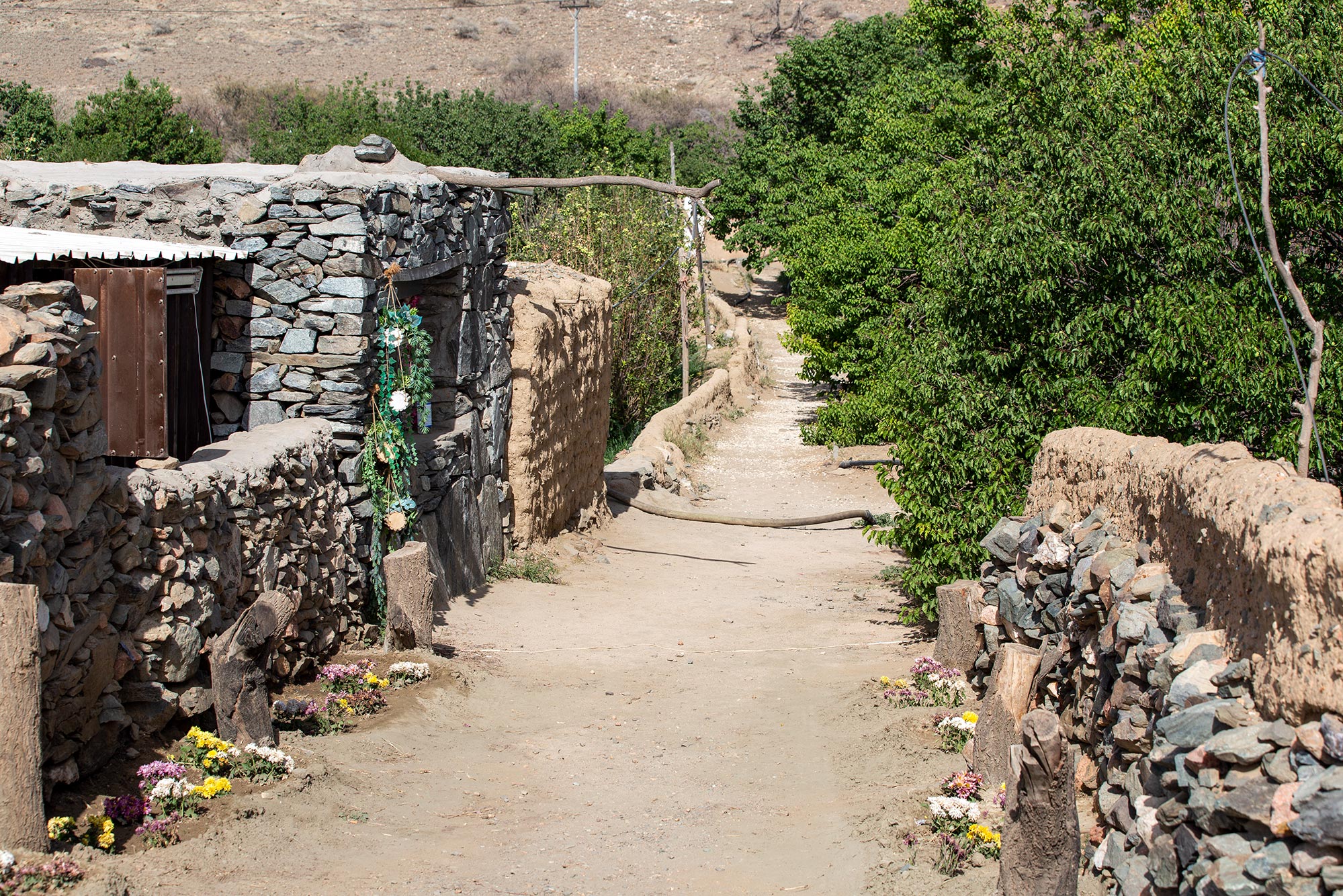
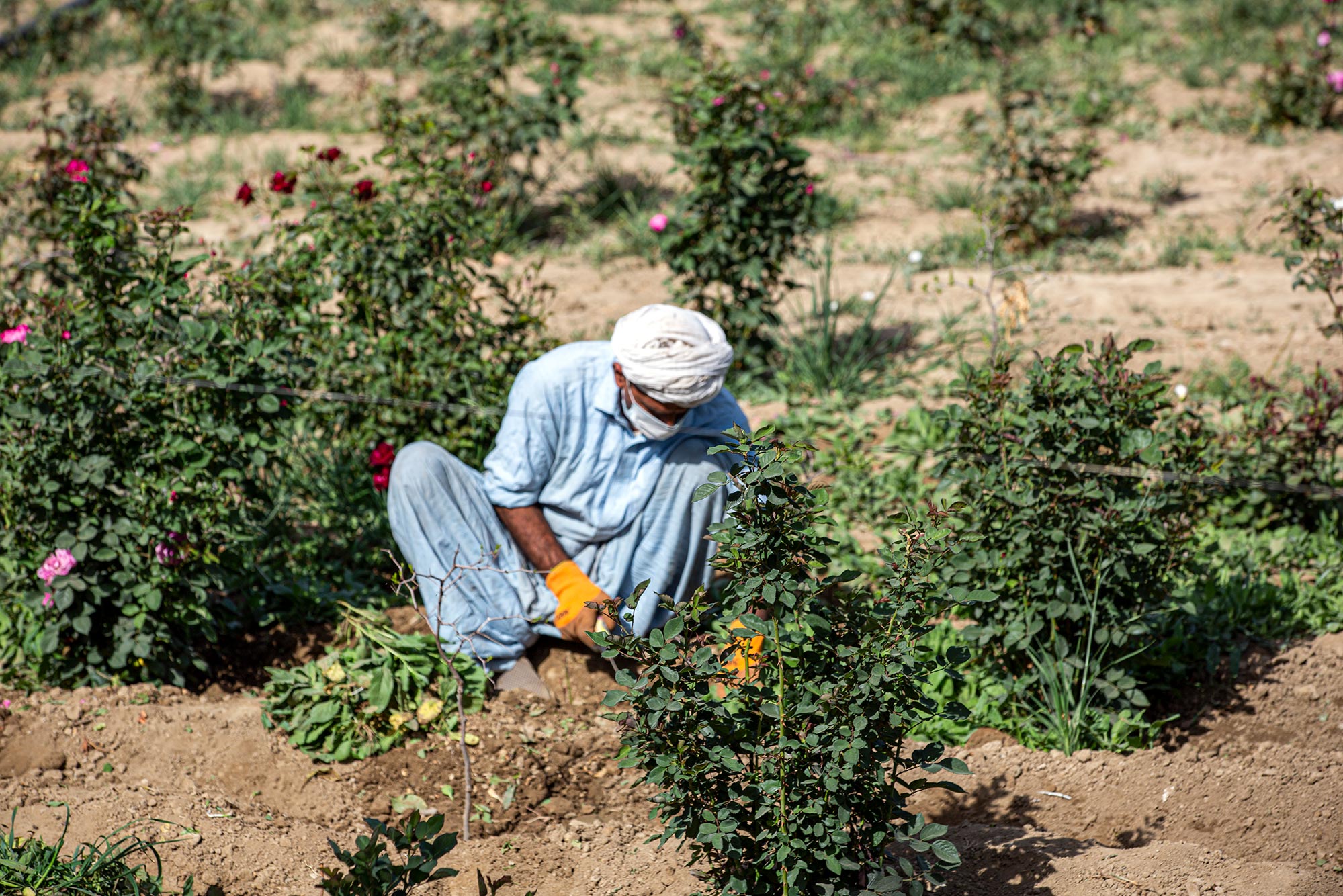
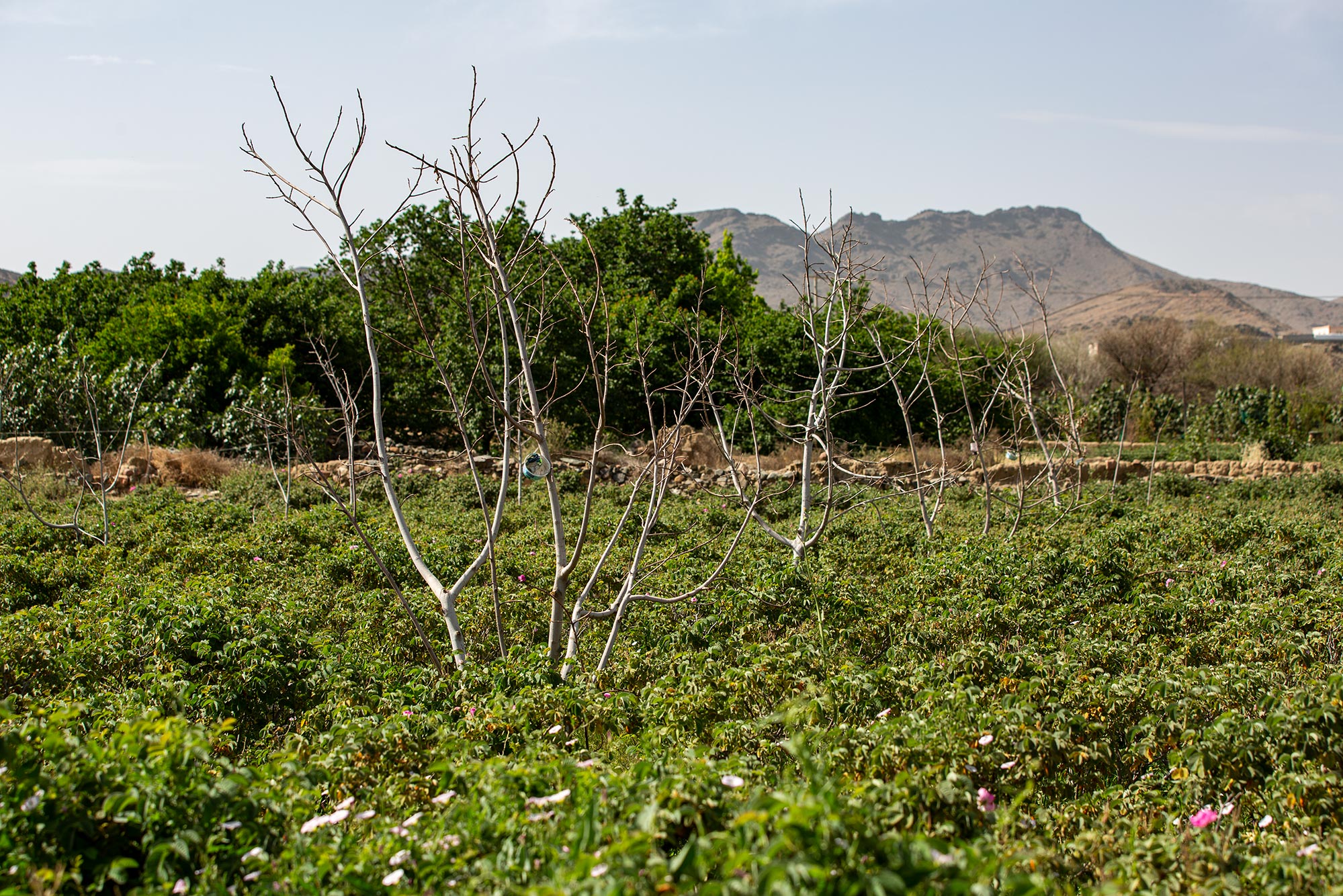
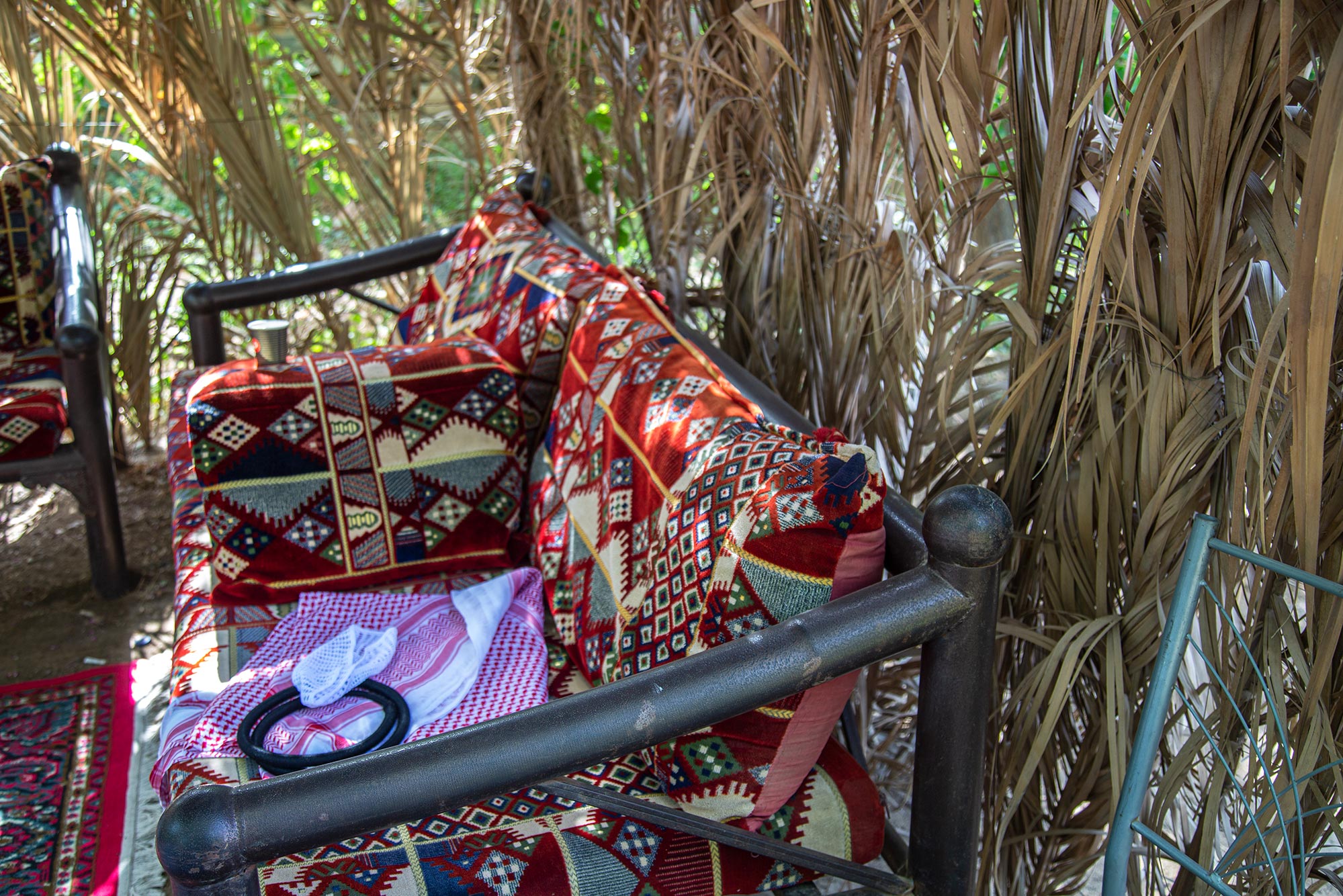
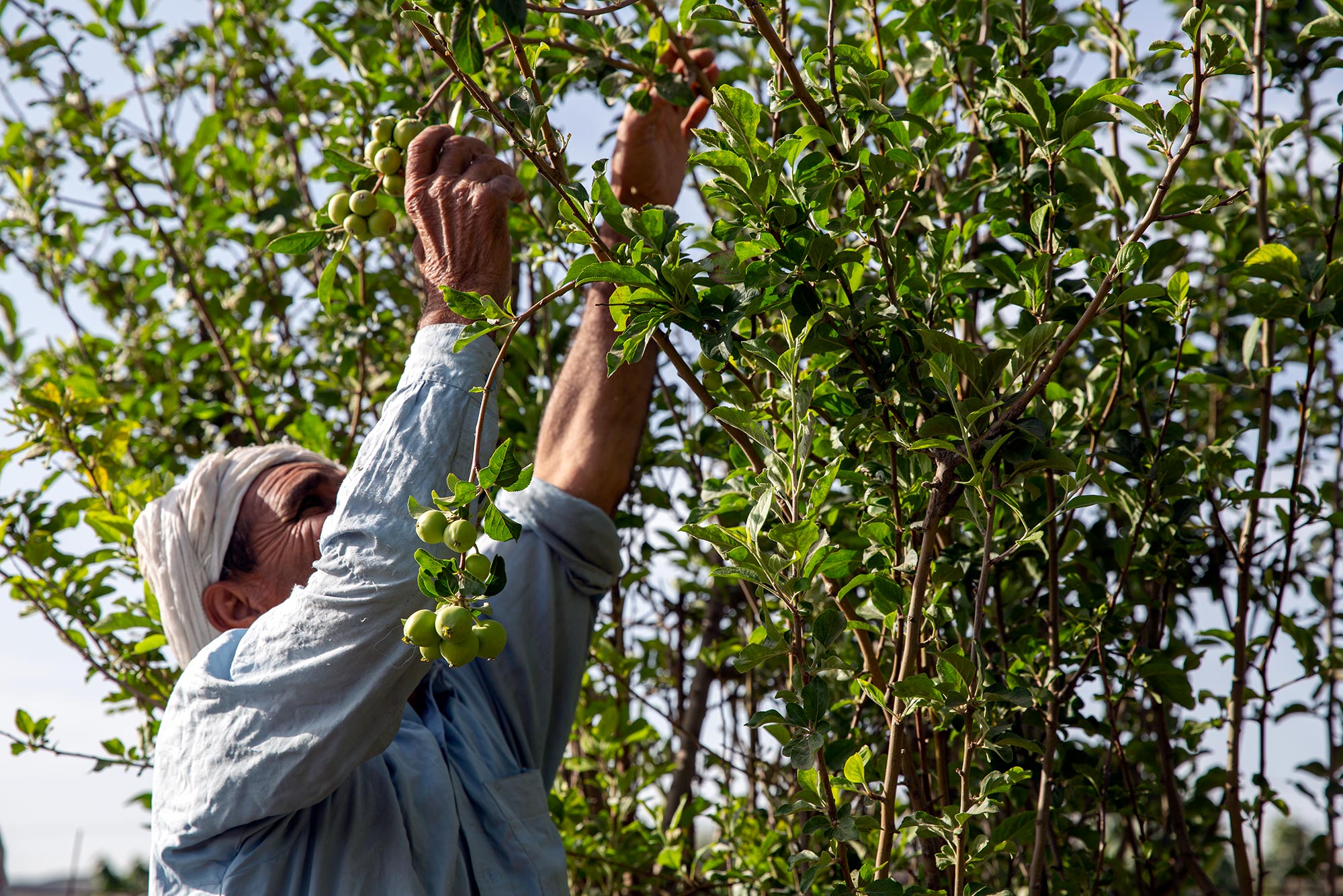
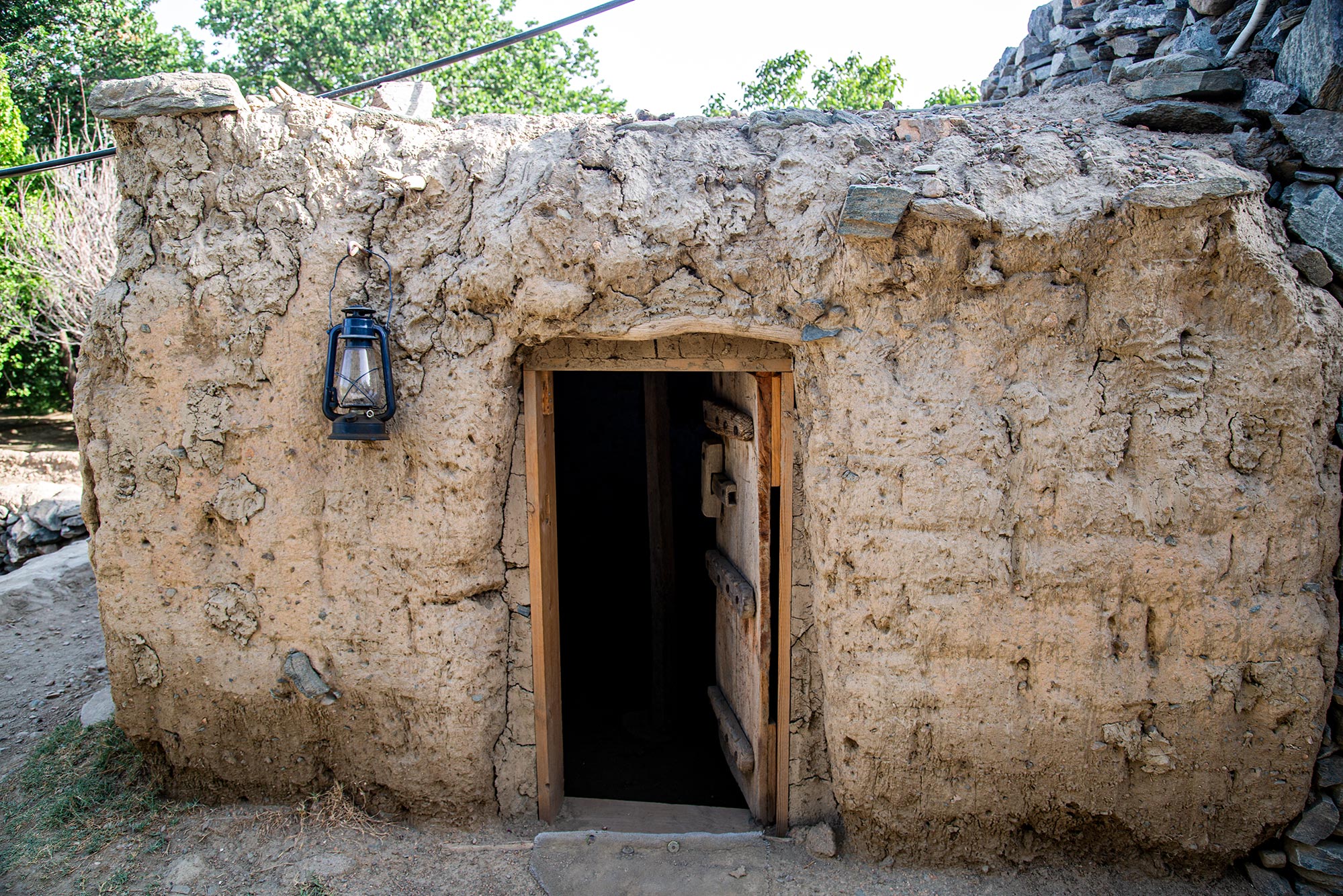
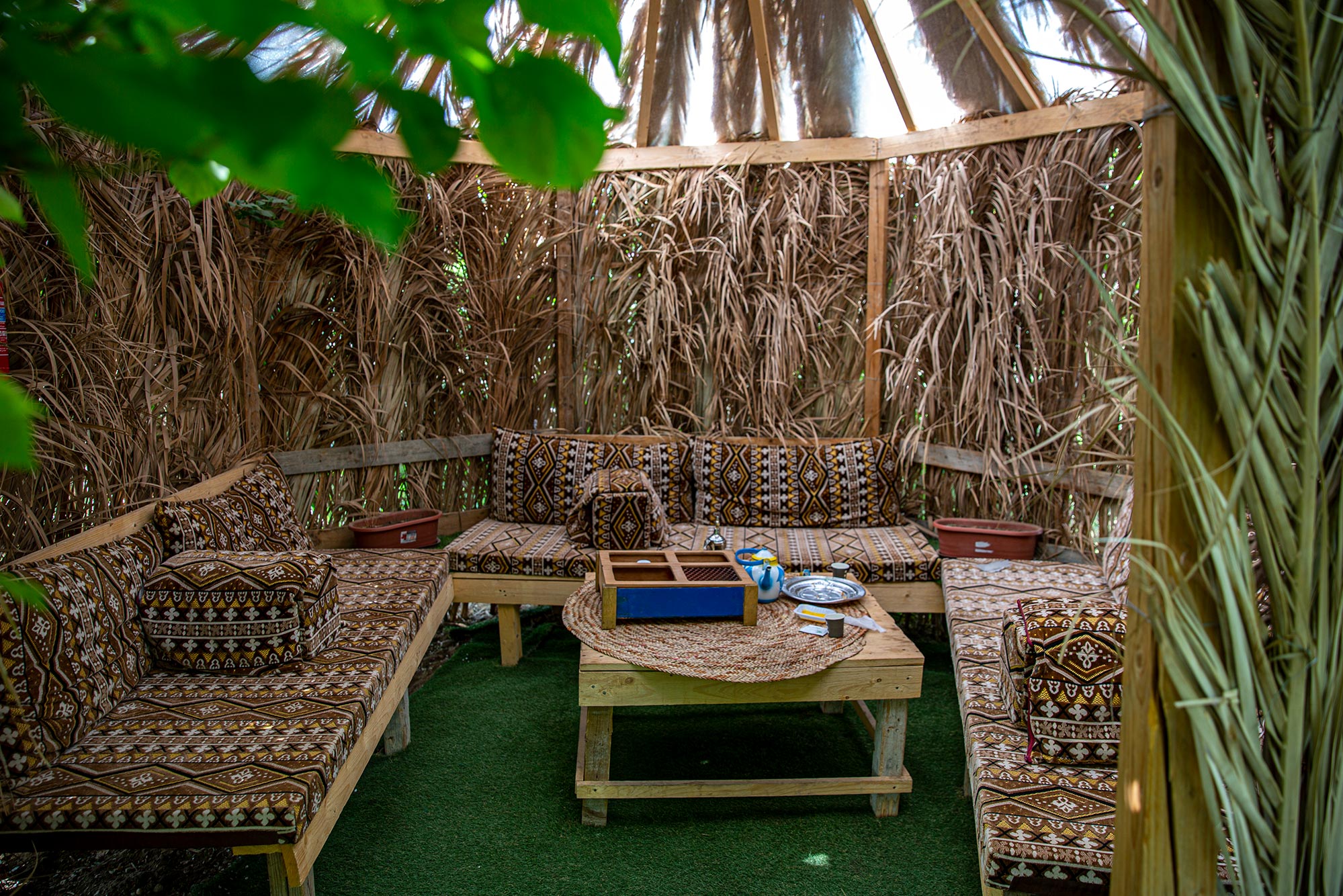
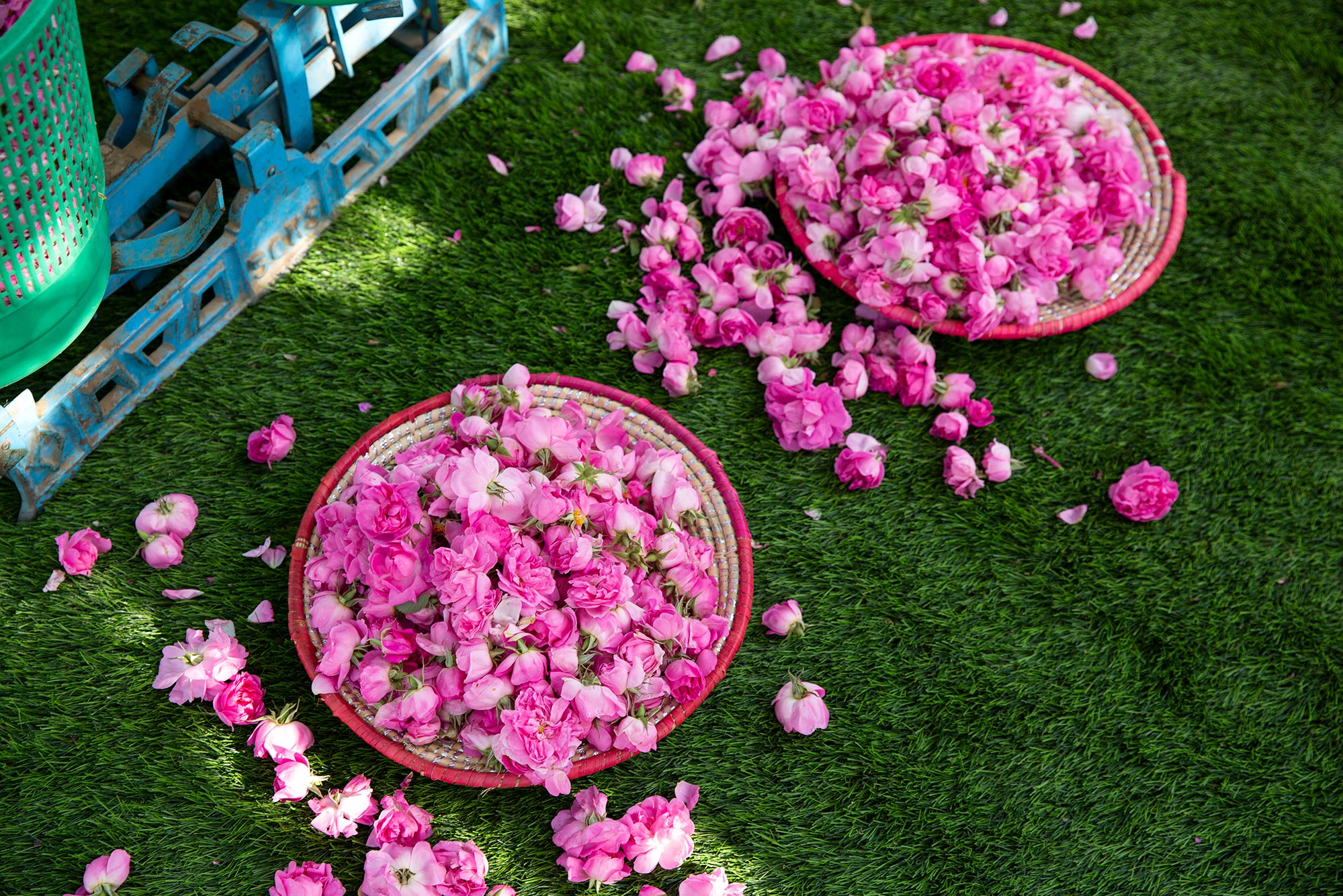
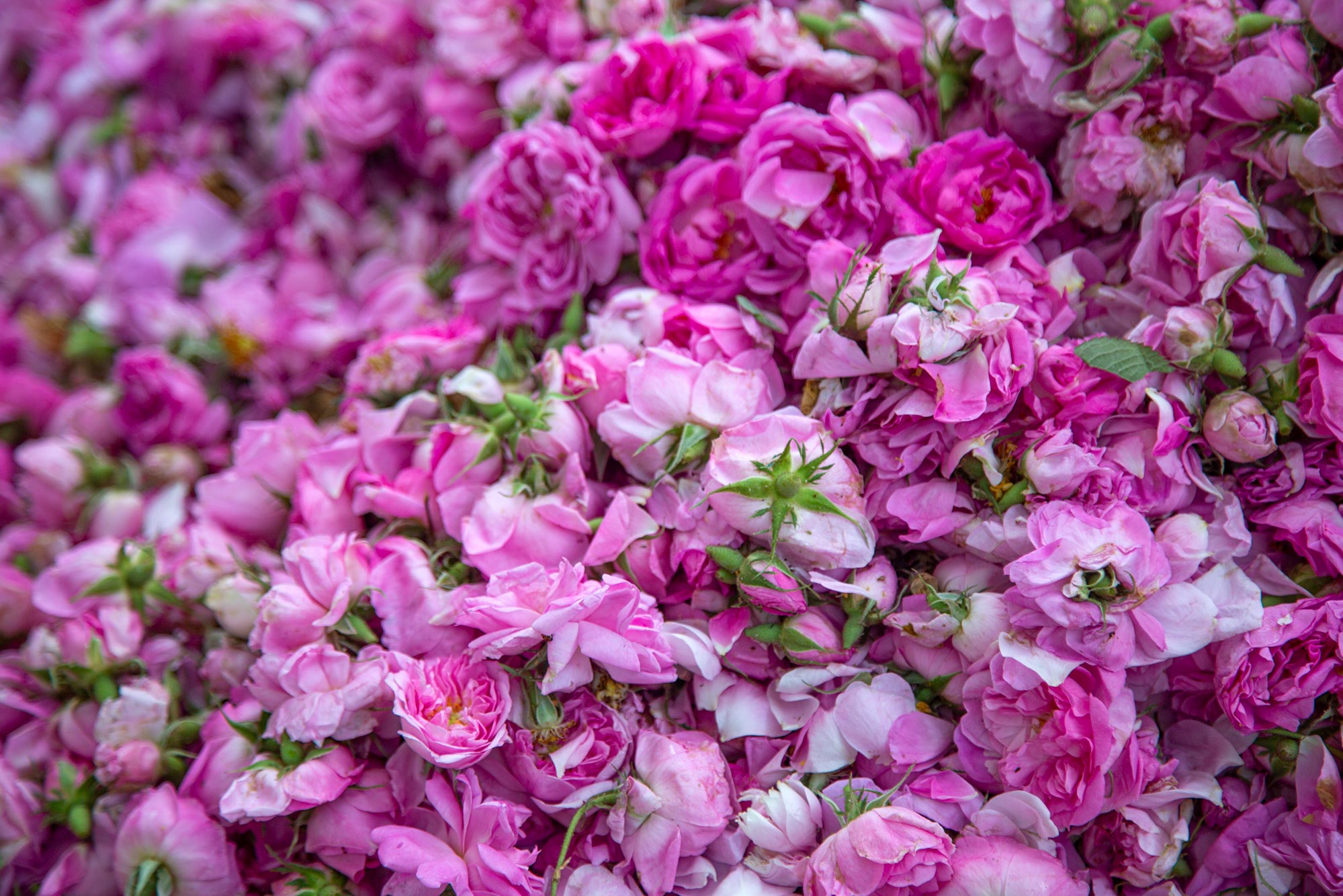
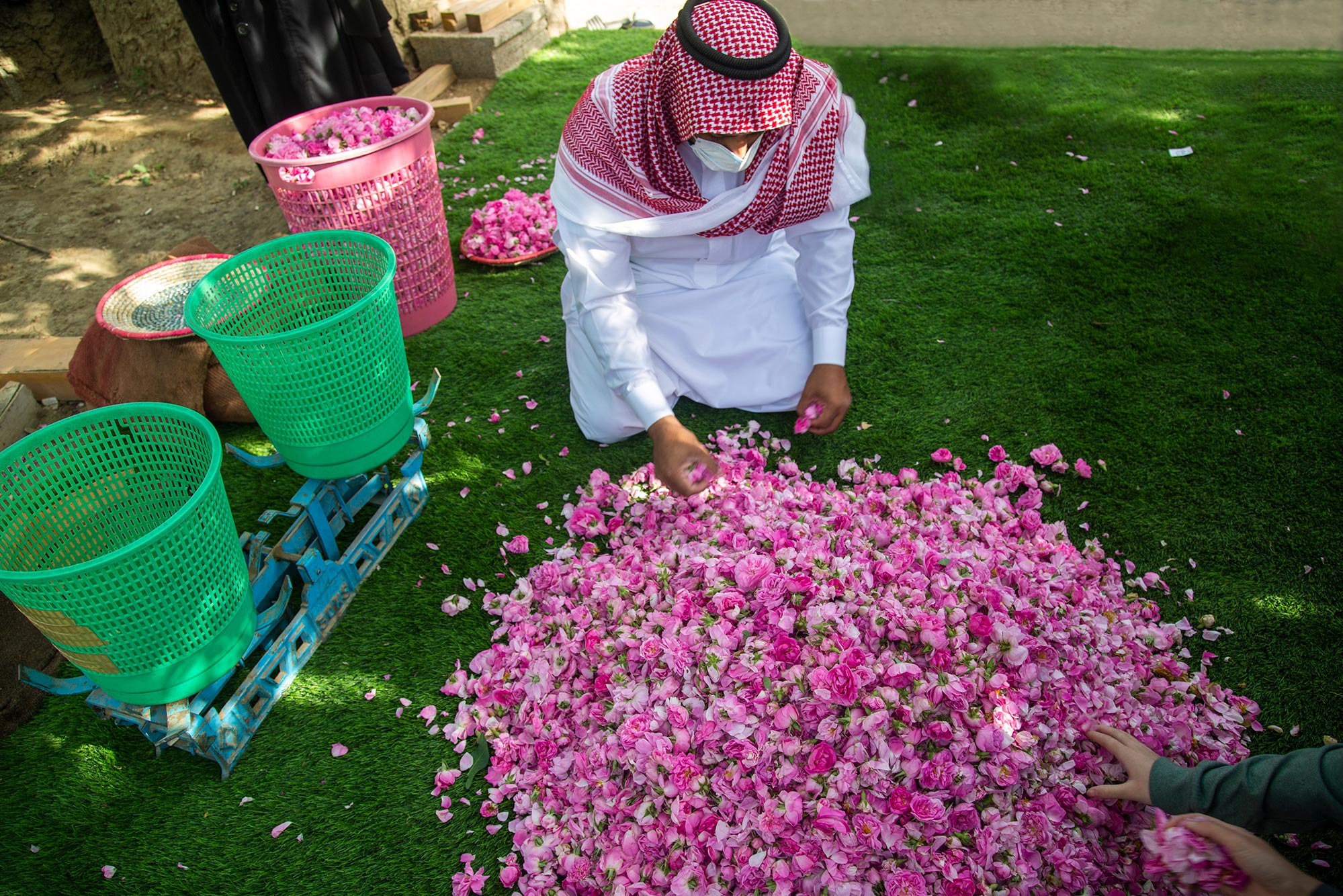
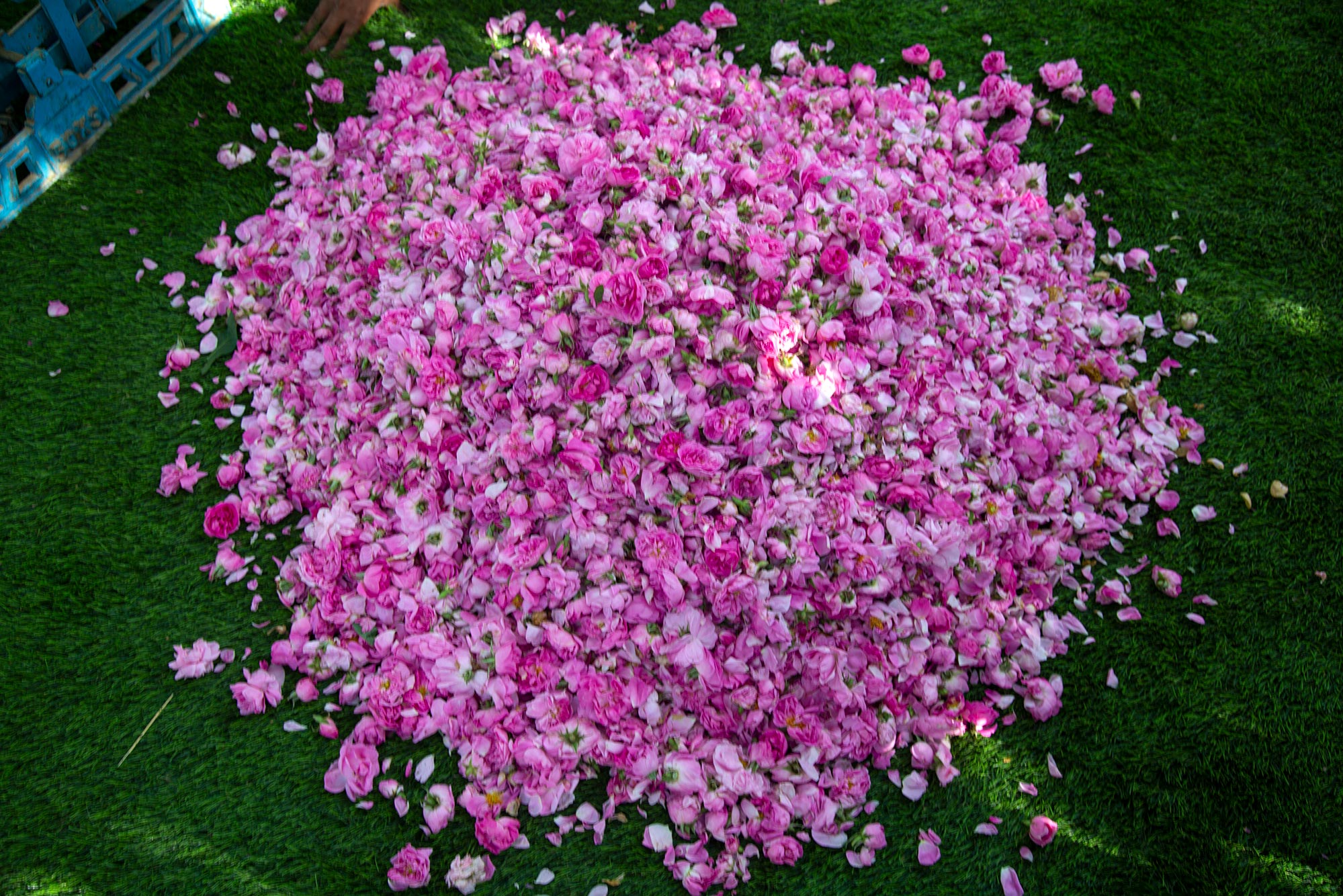
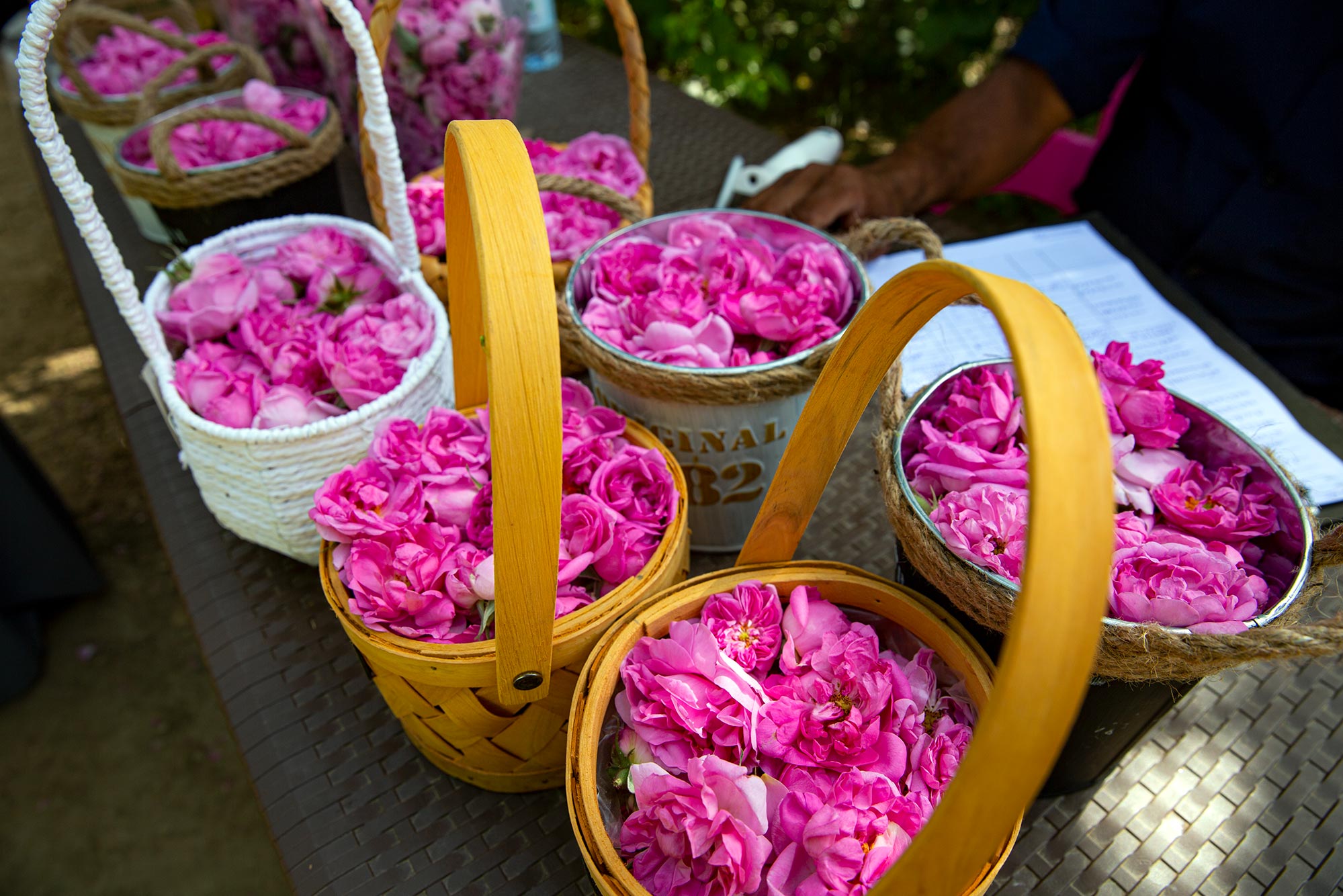
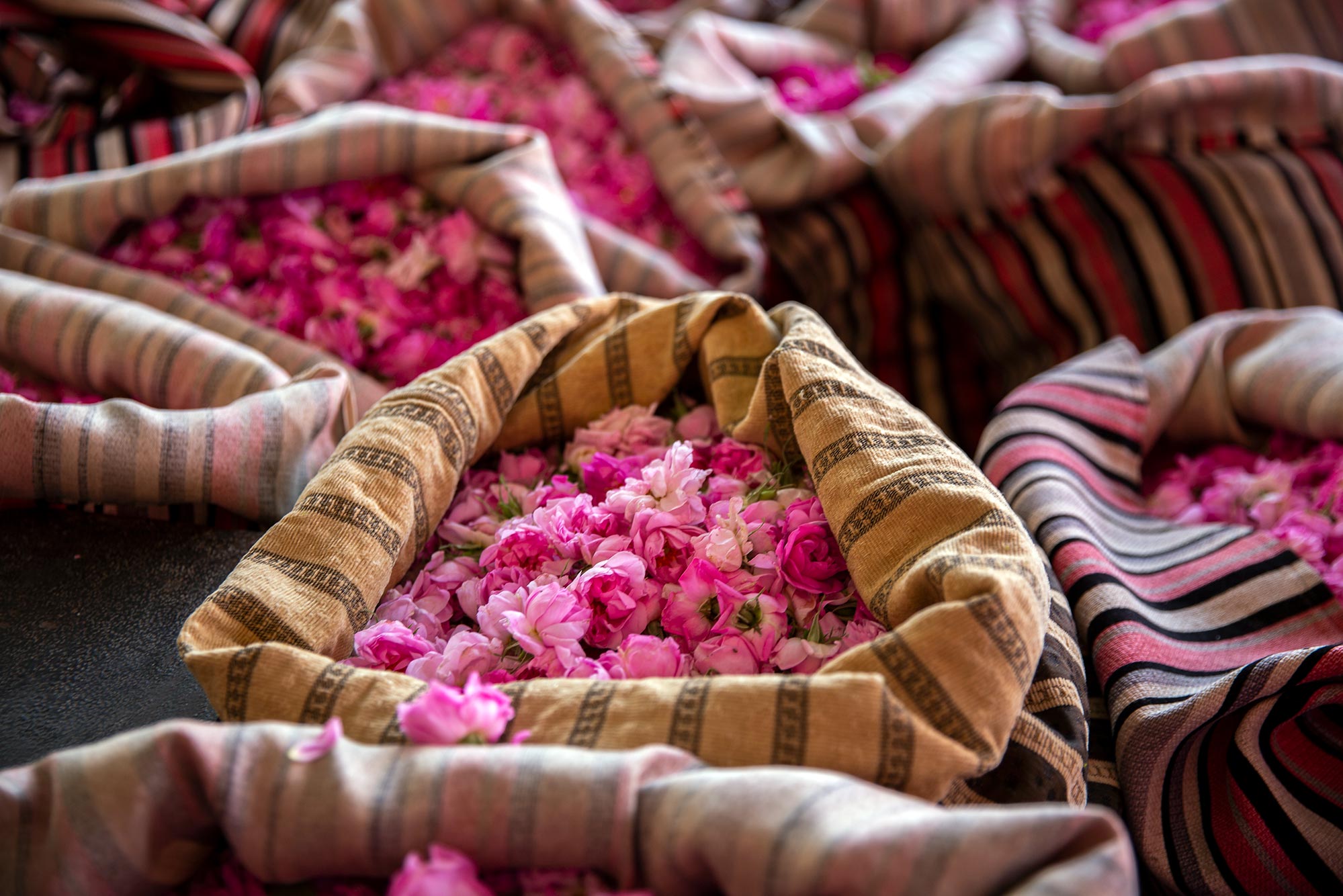
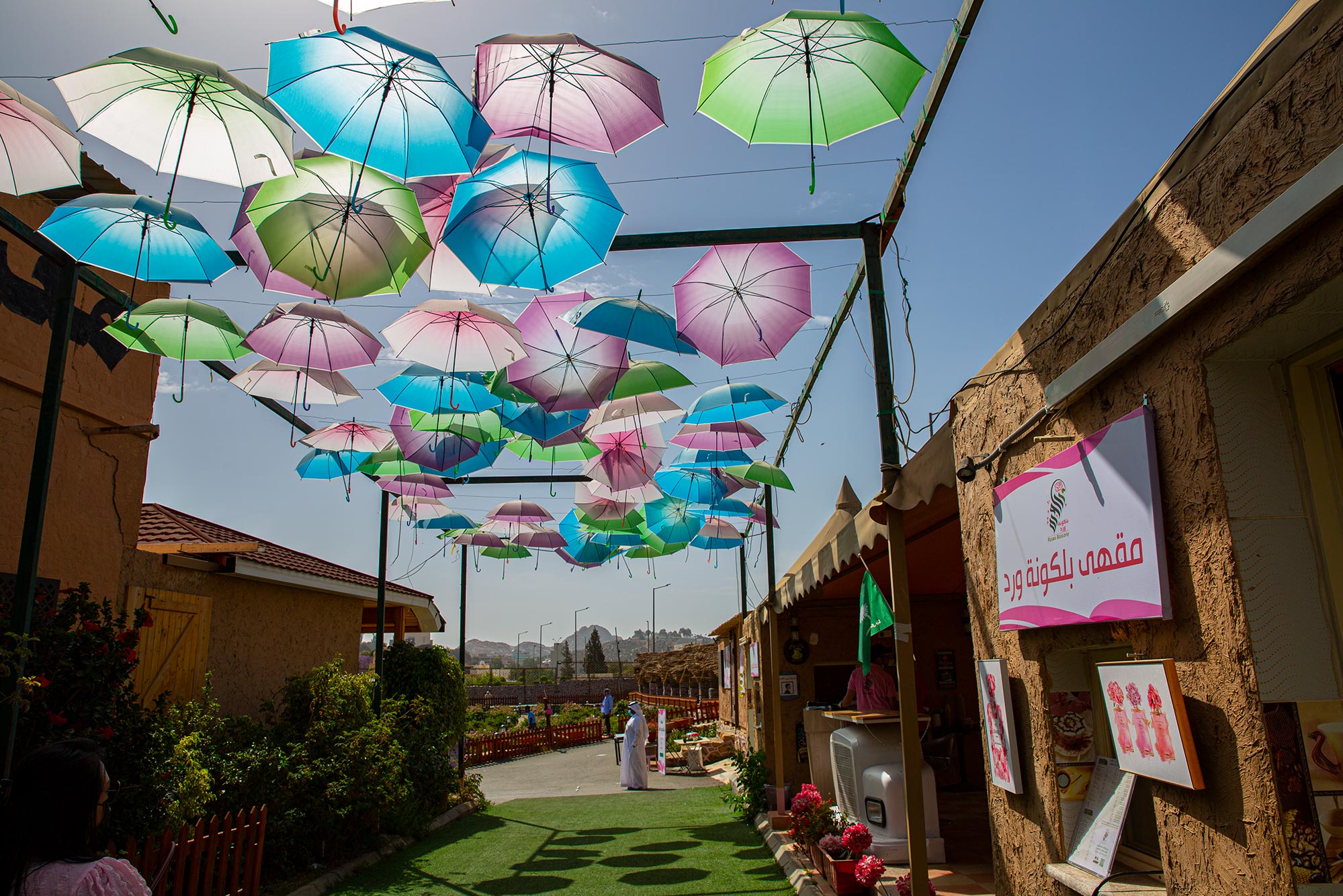
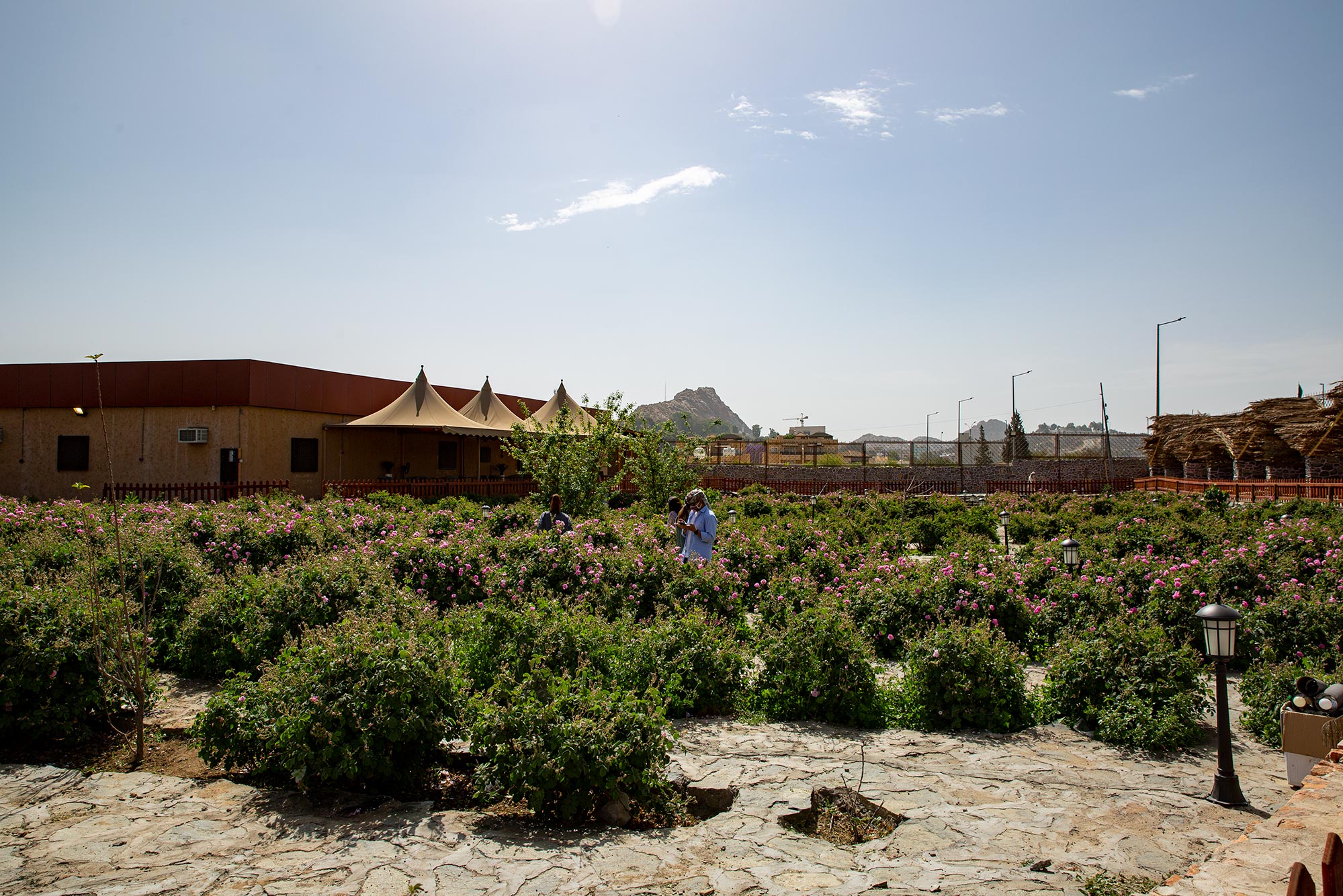
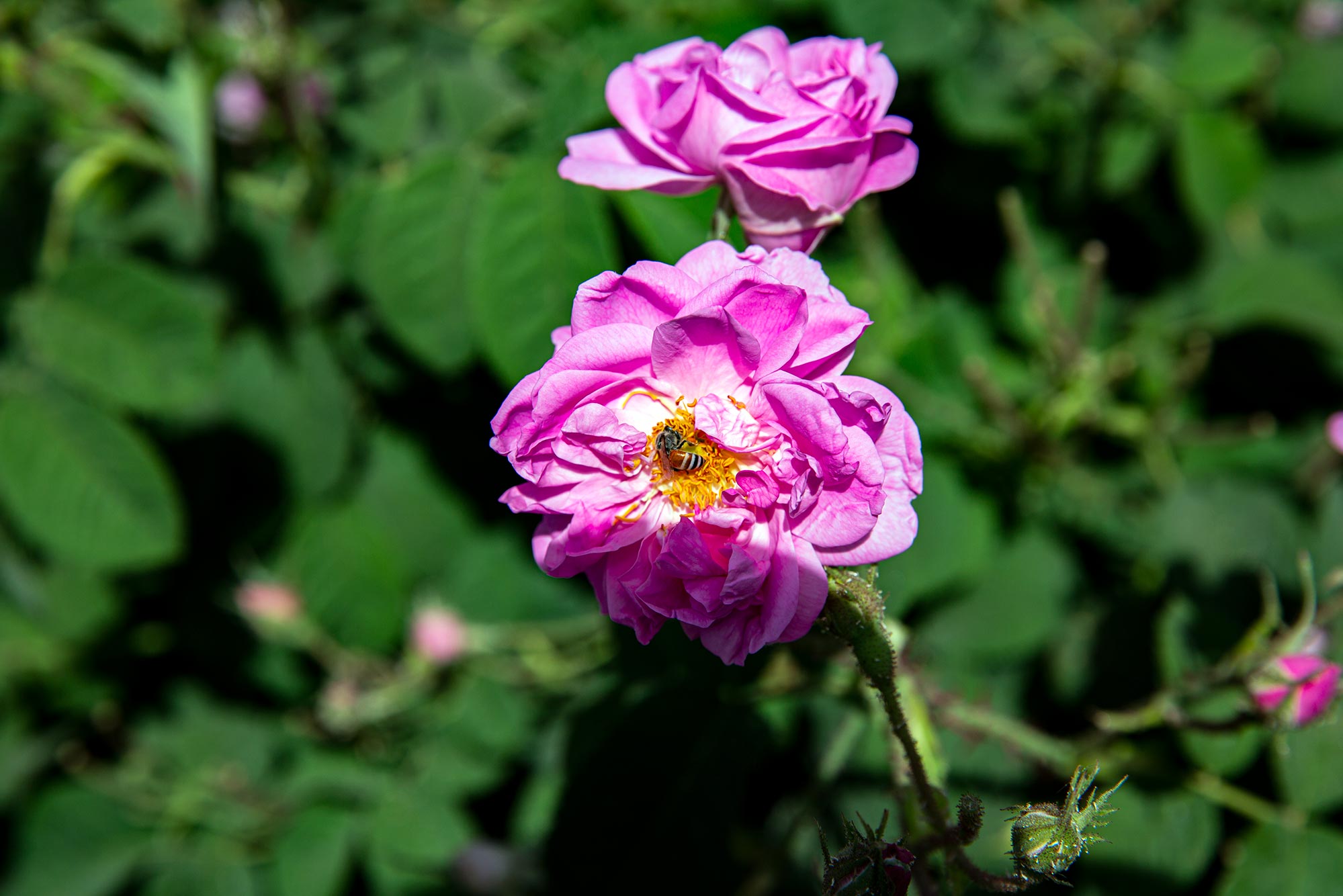
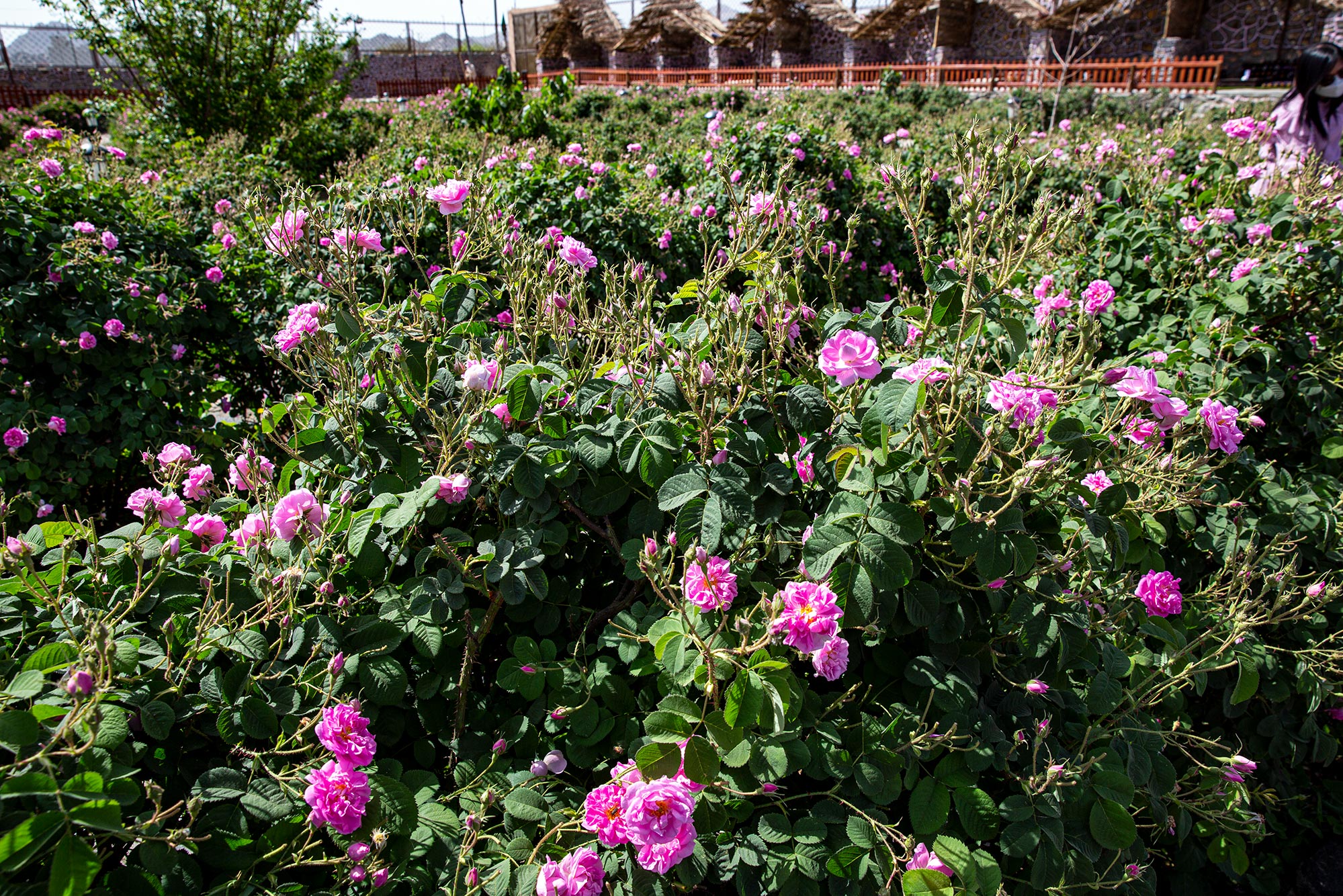
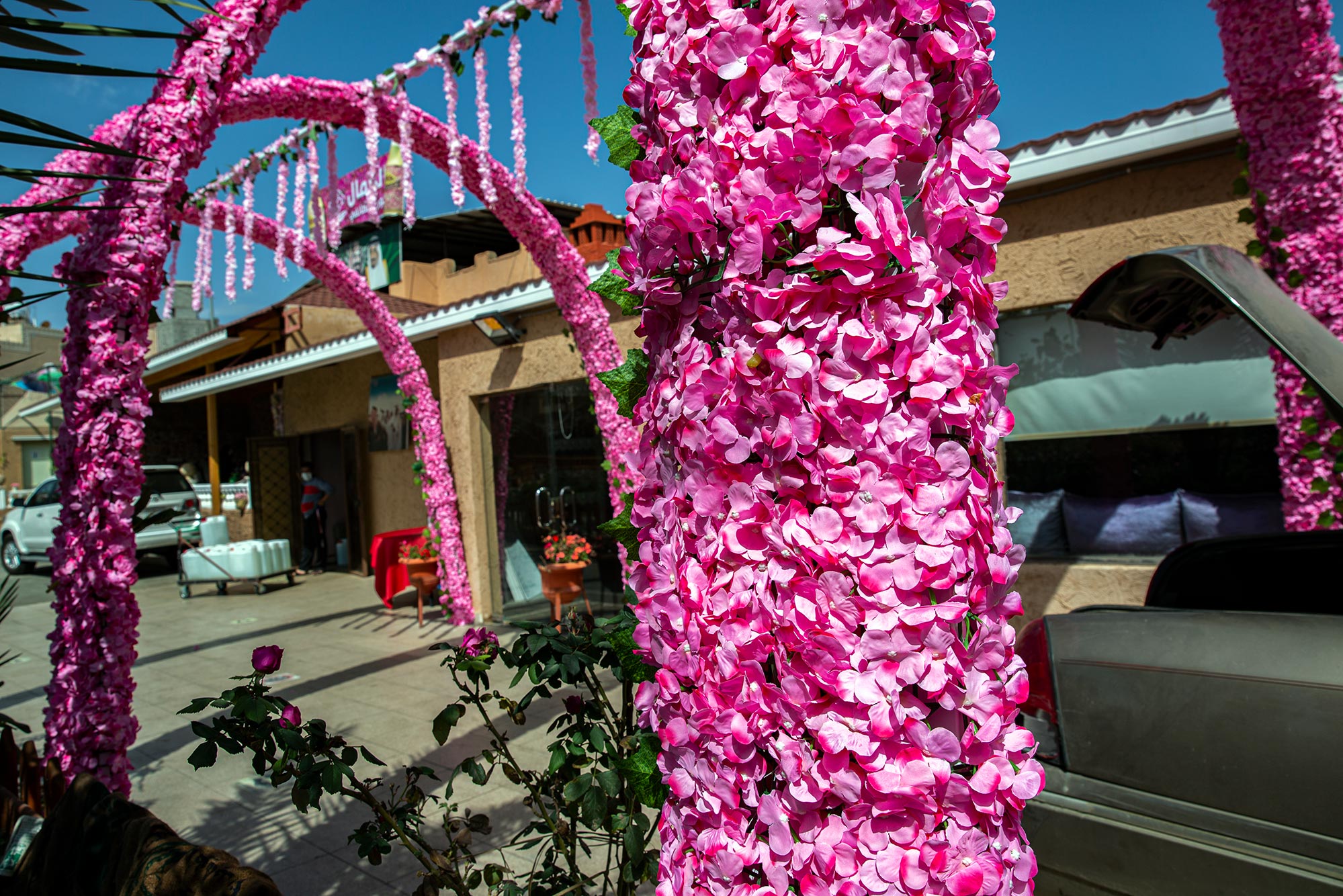
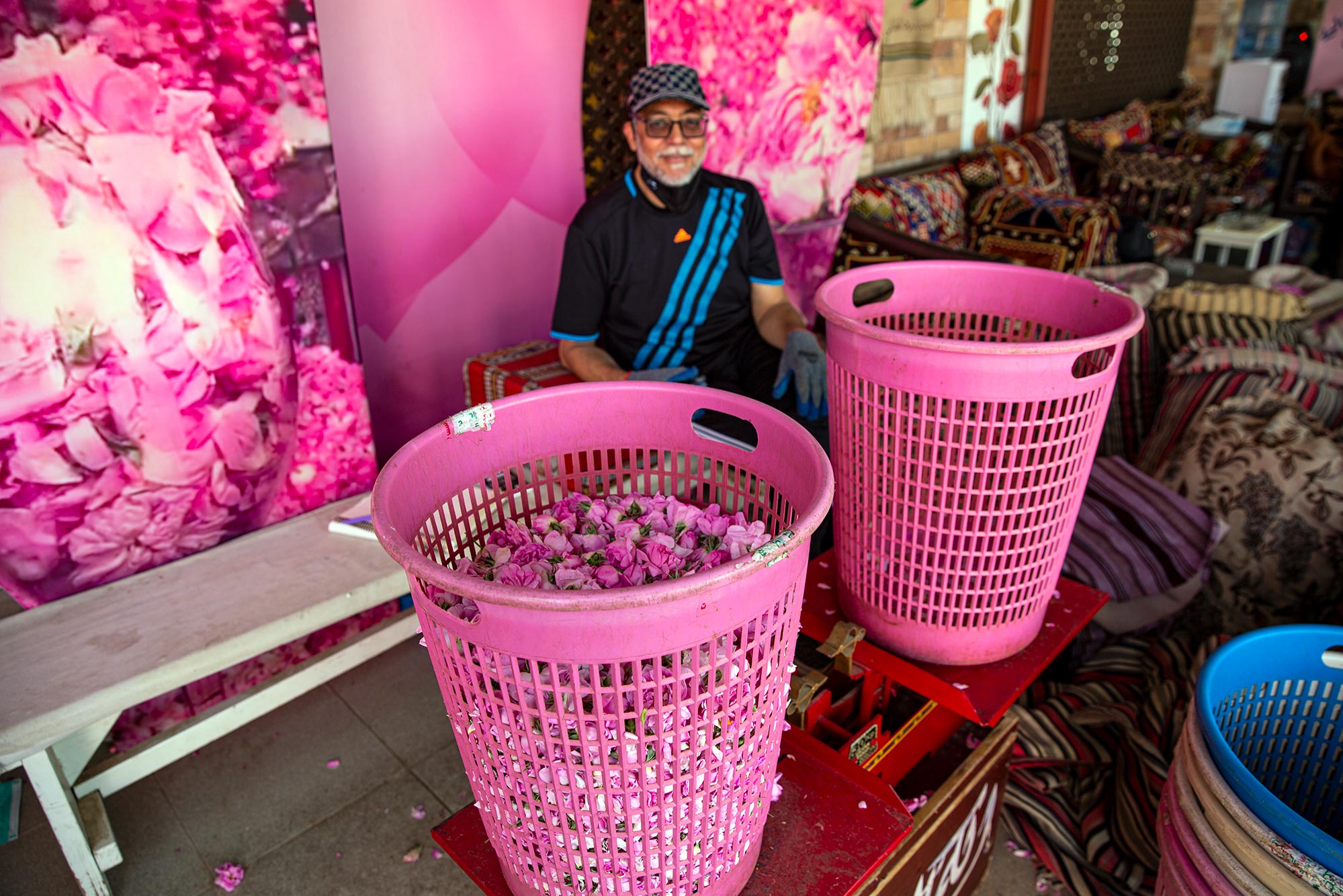
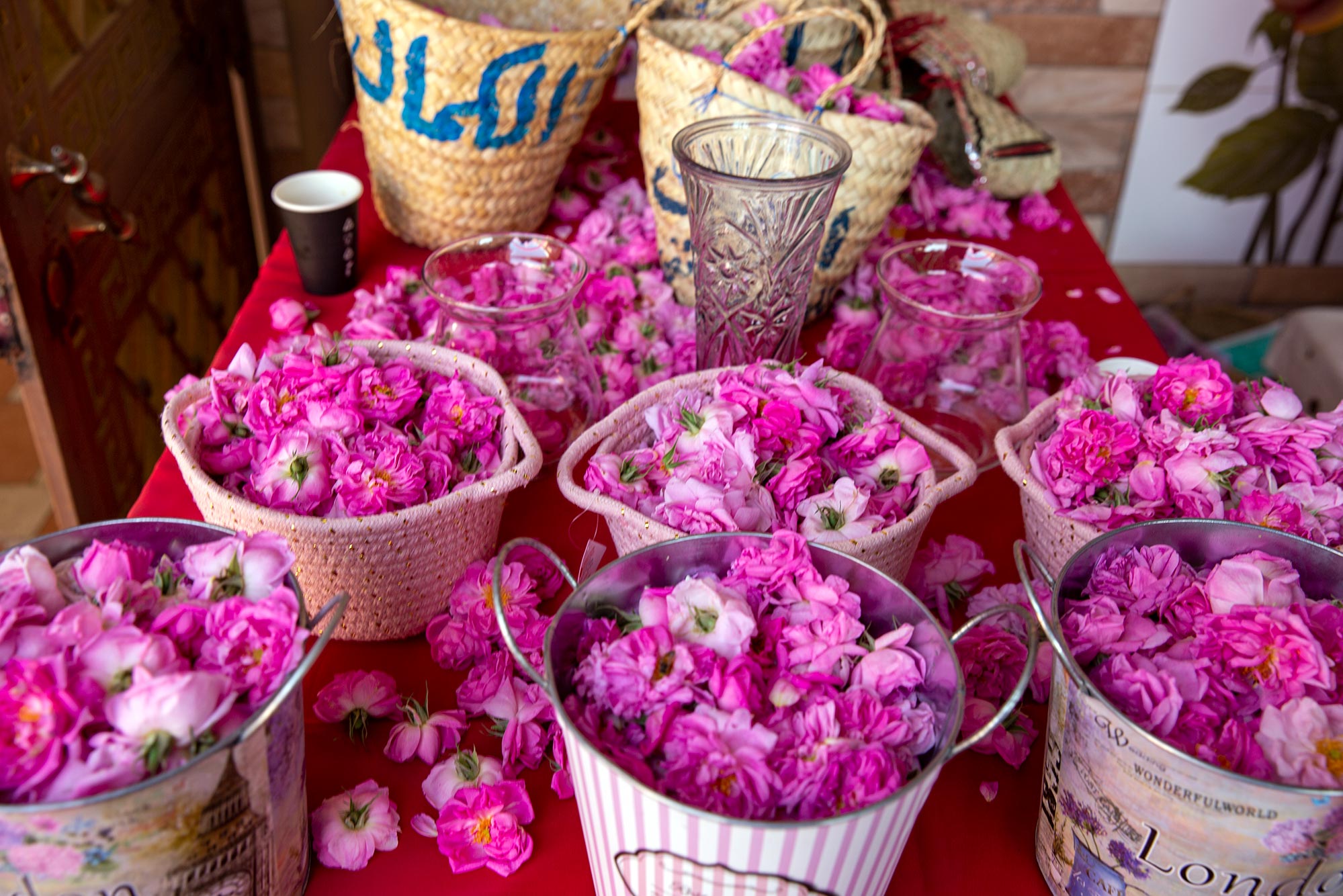

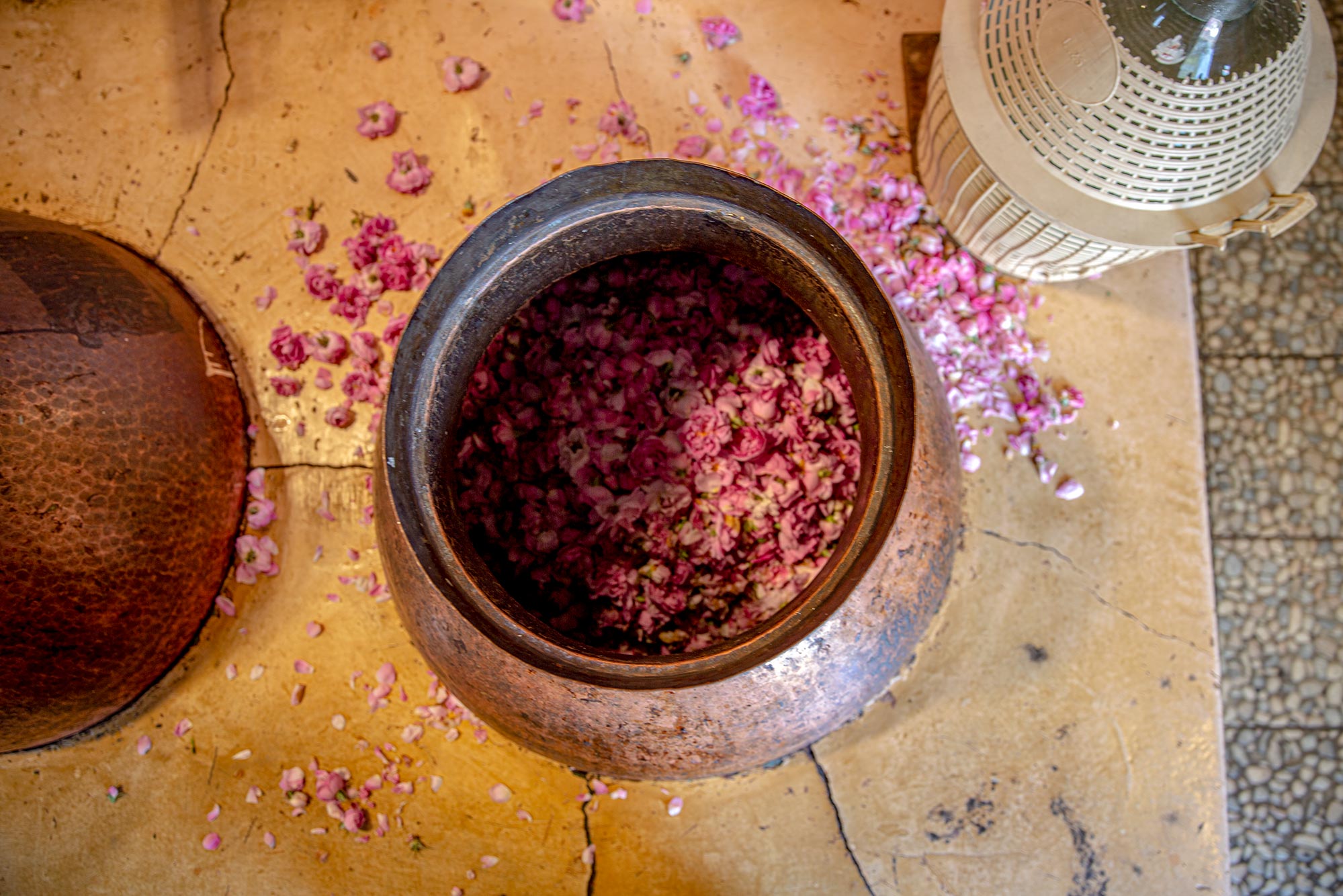
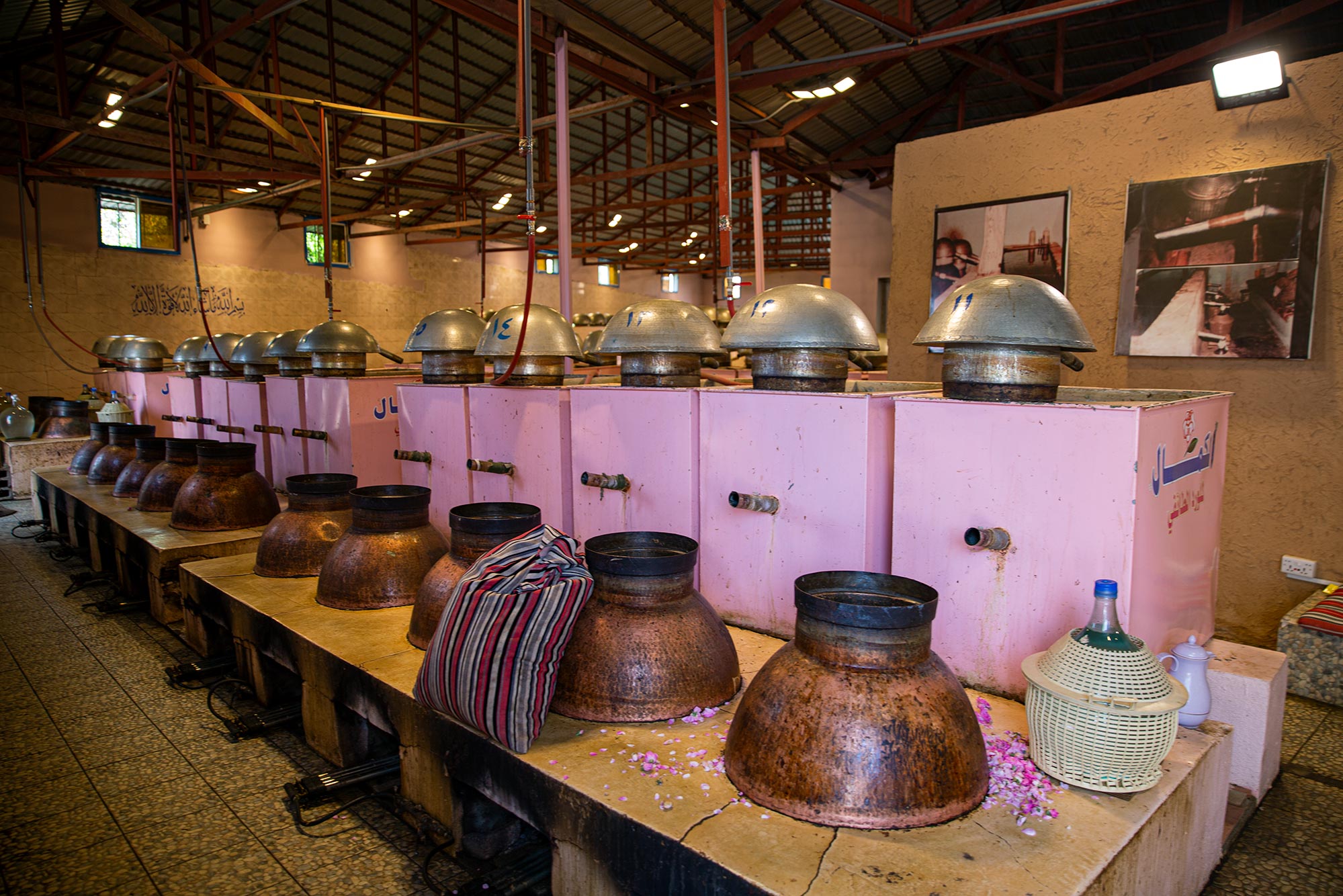
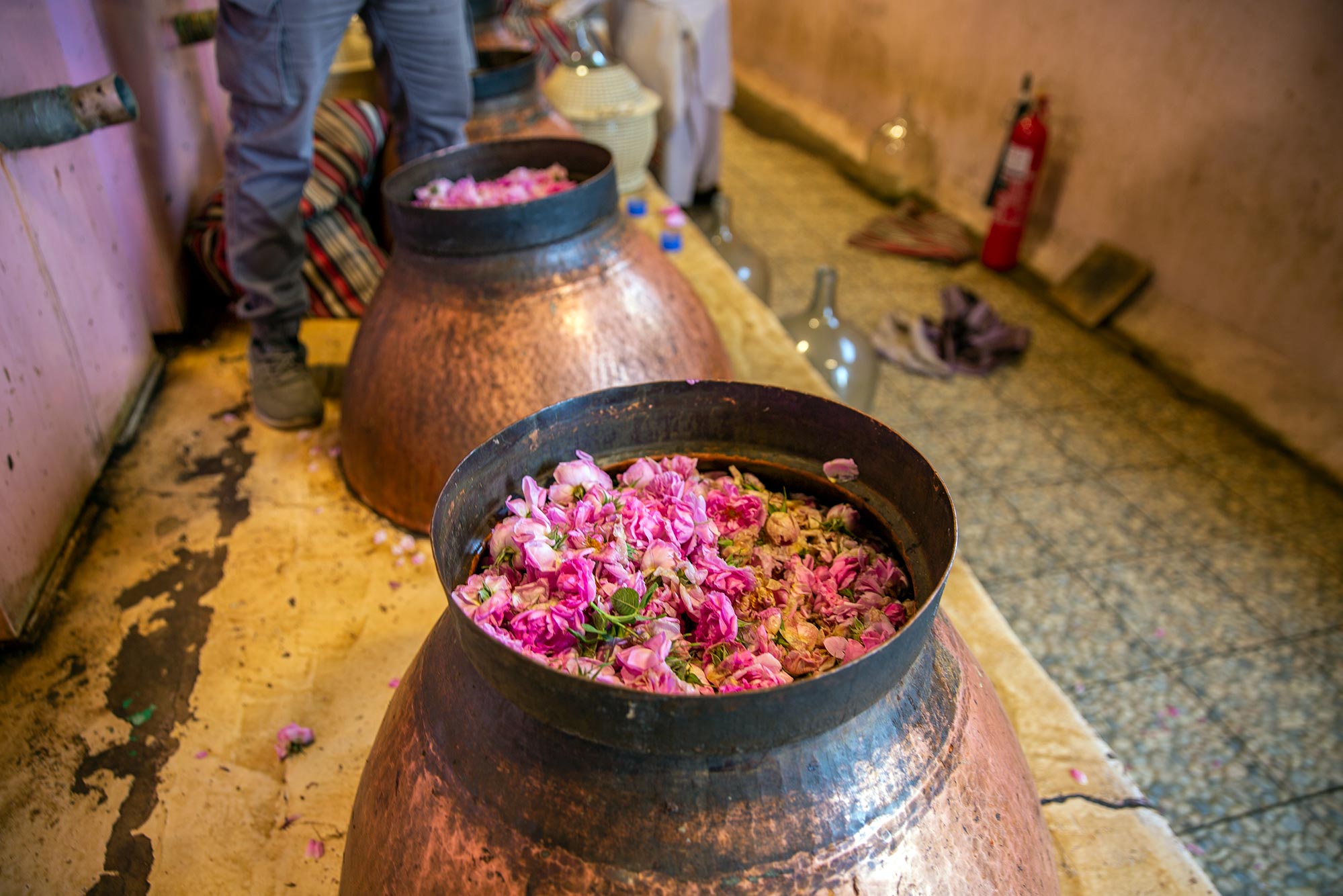
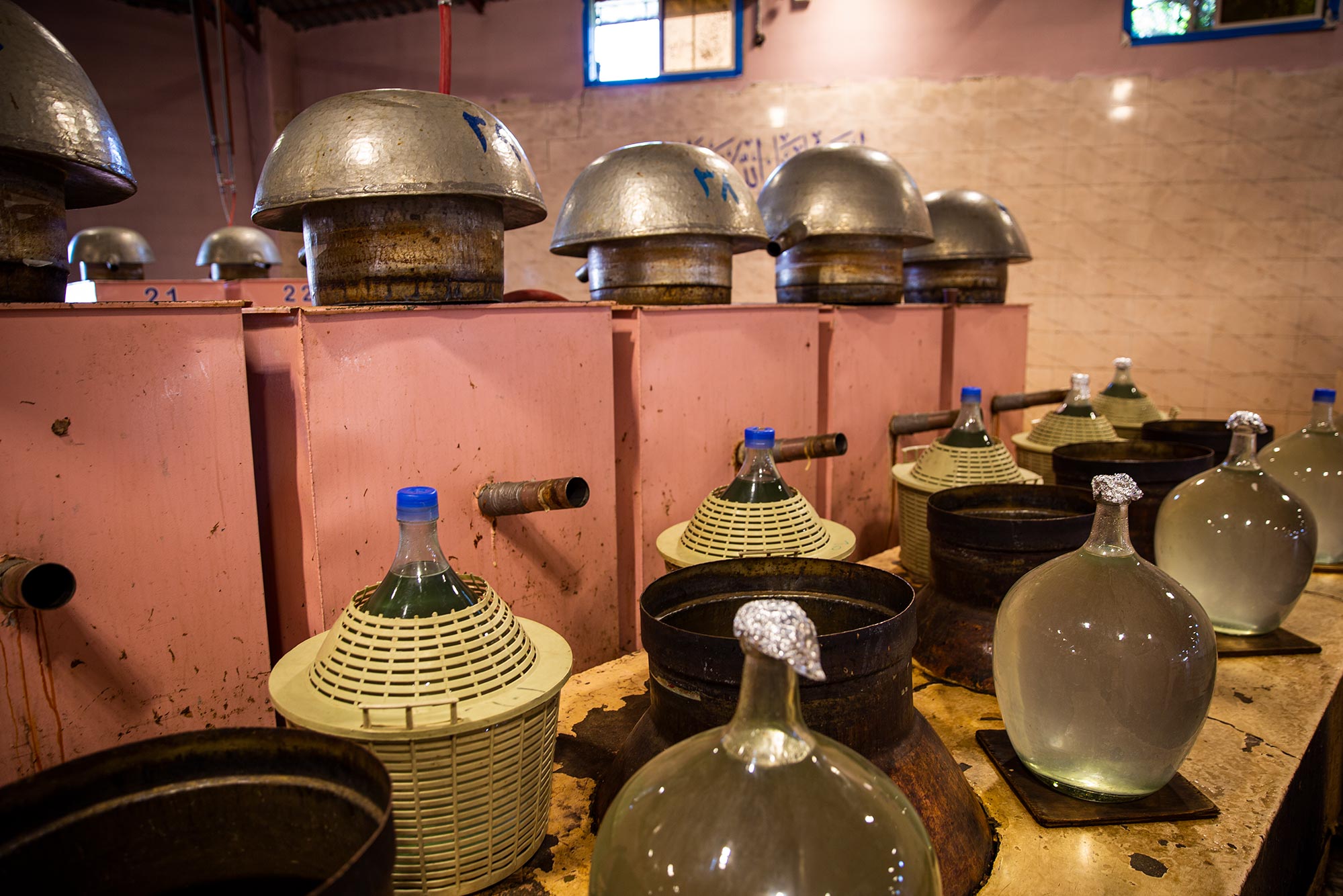
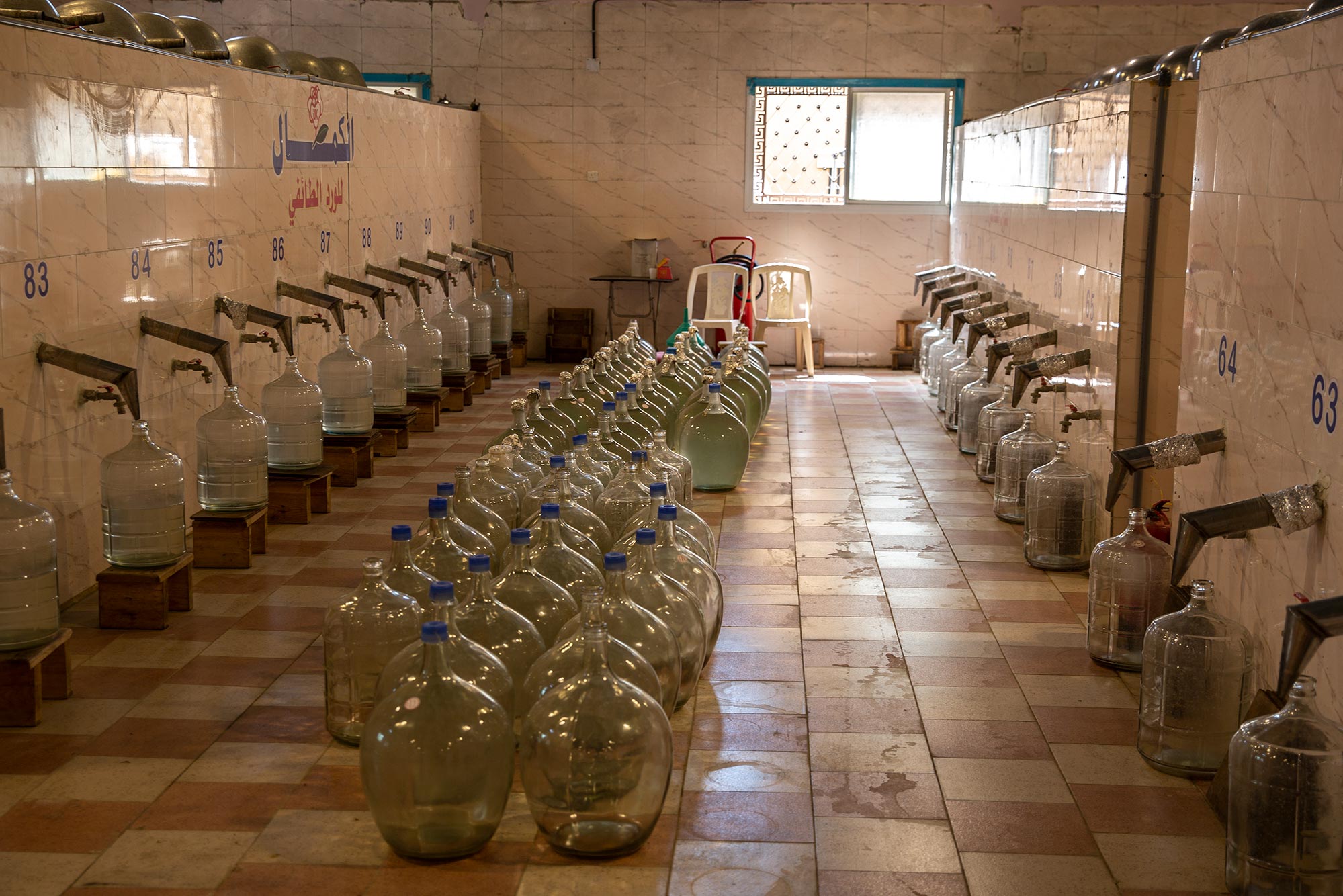
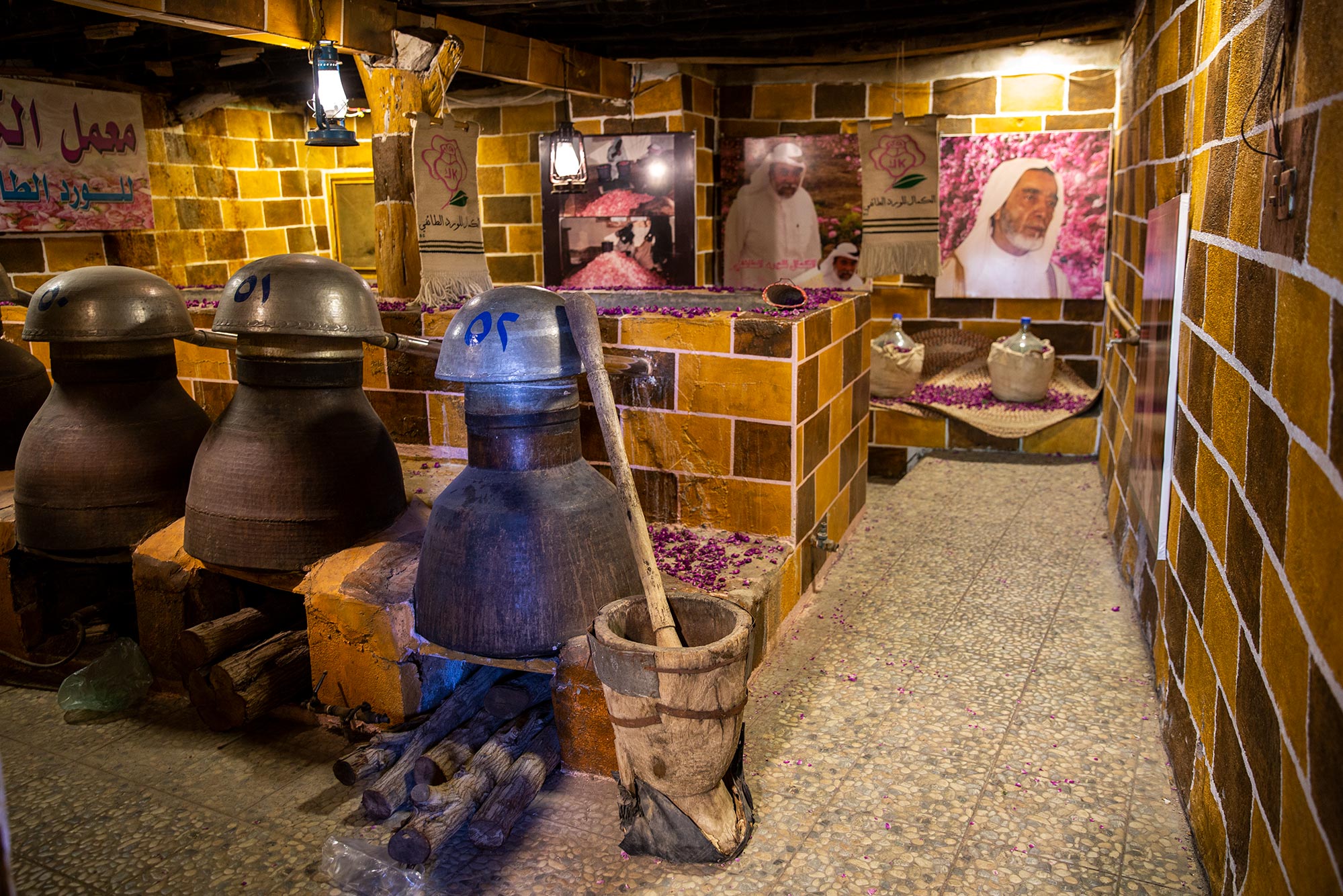
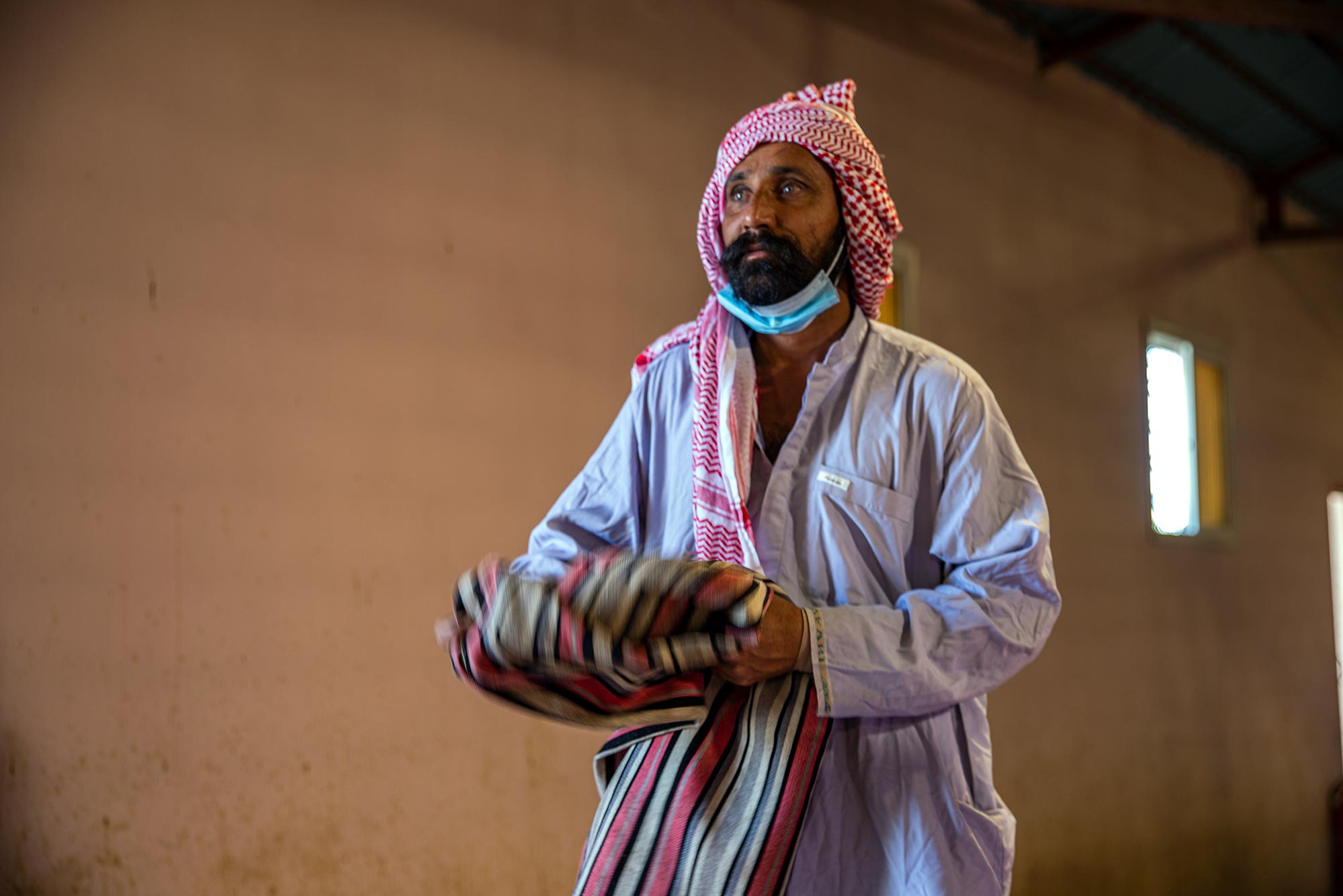
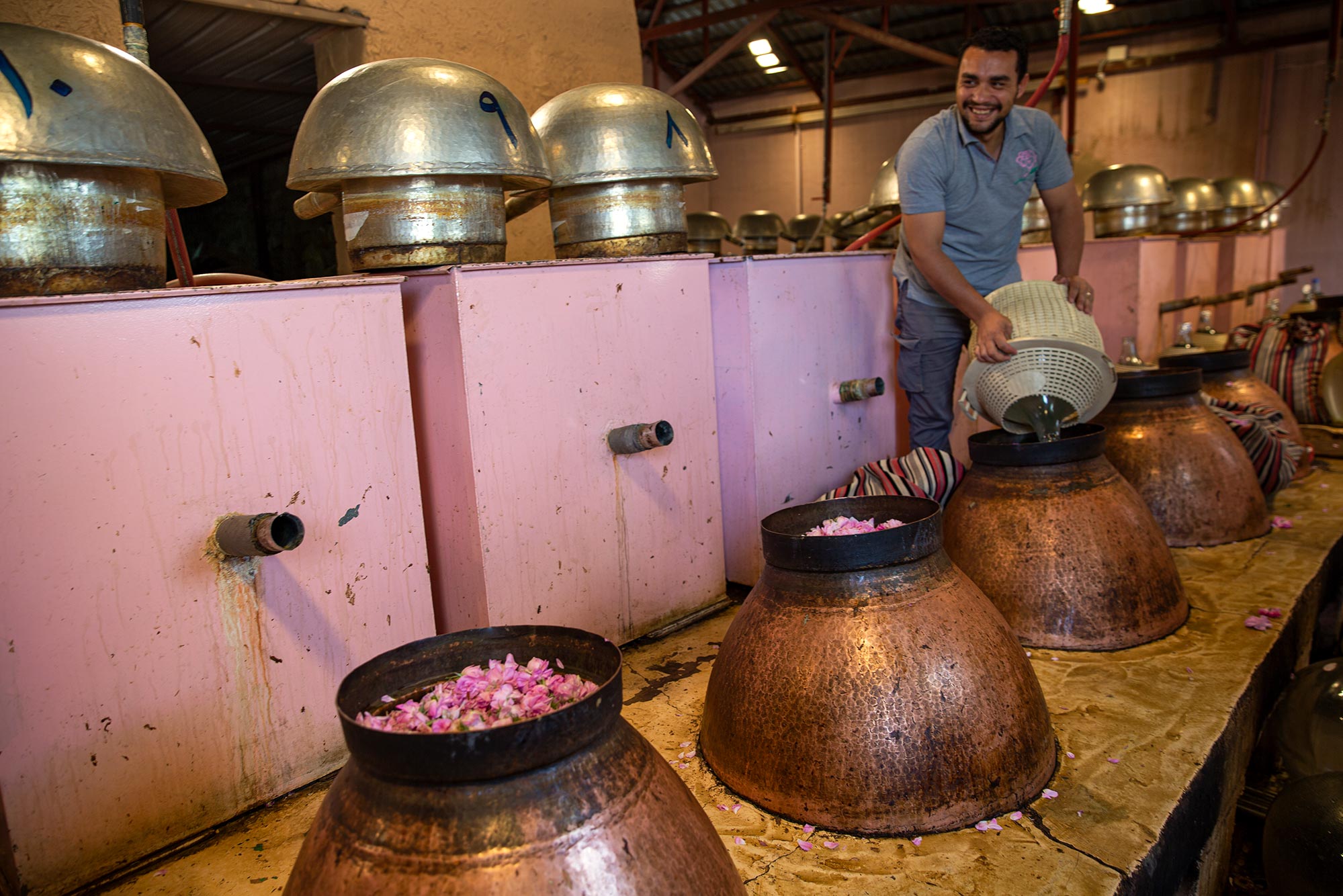
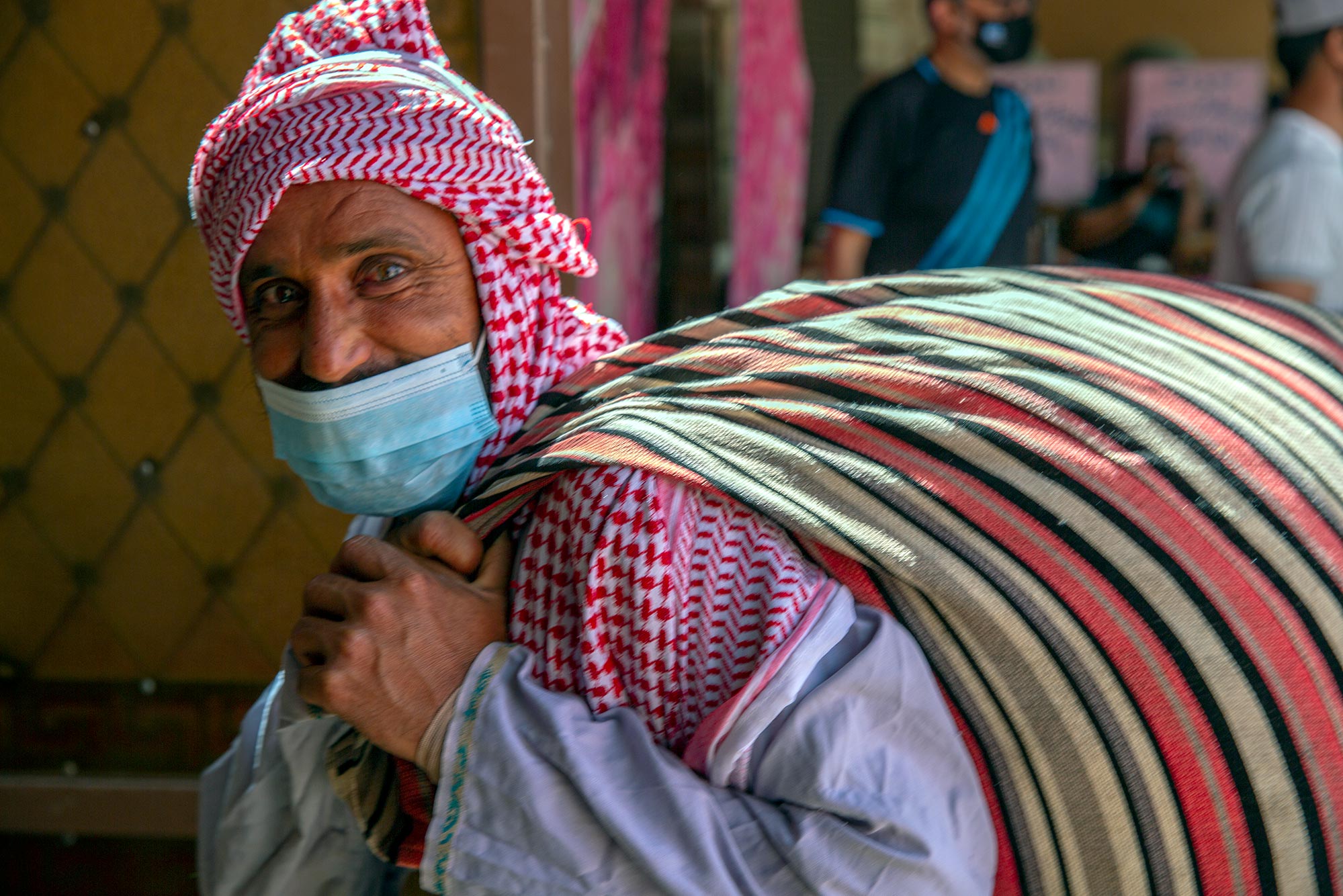
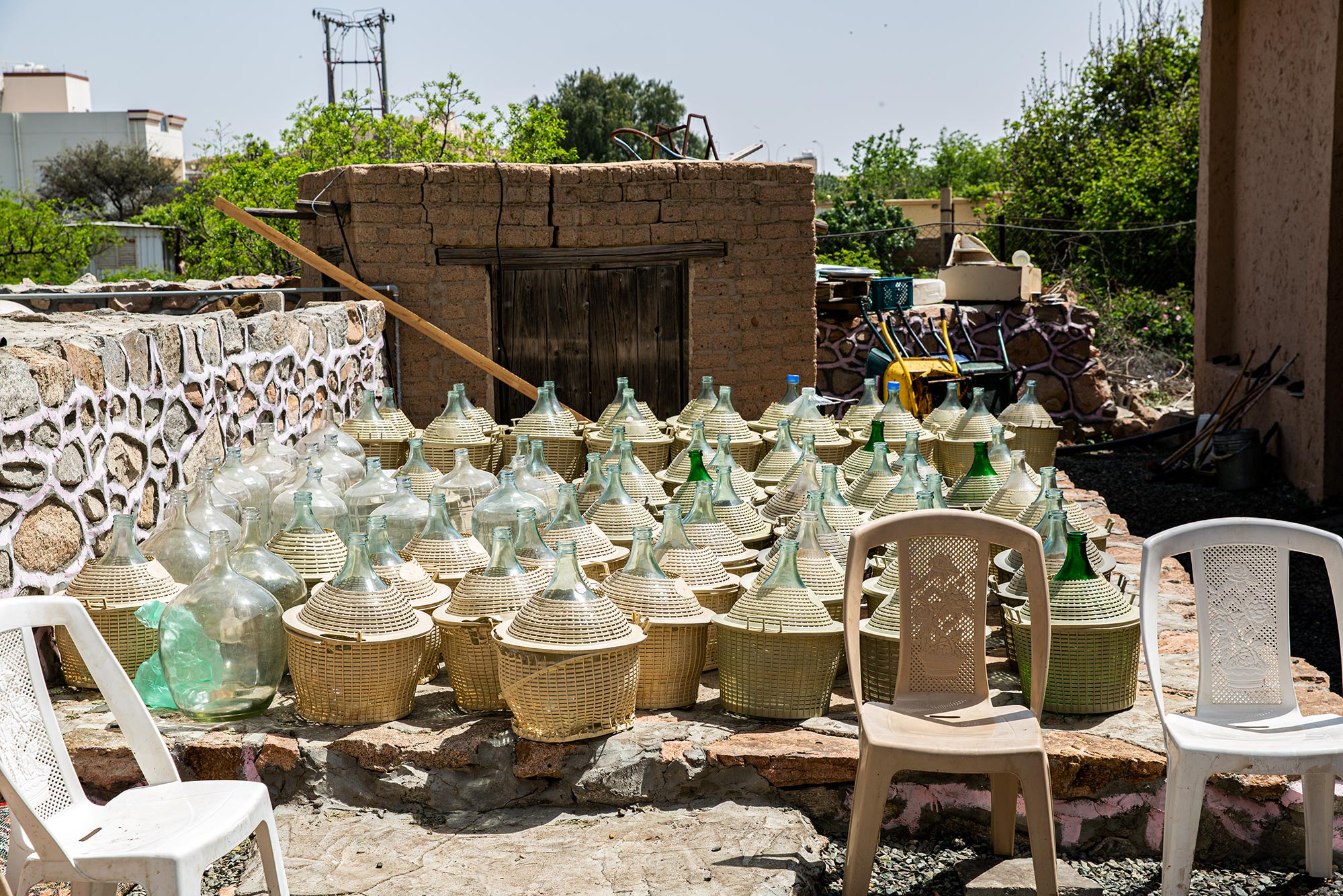


Comments powered by CComment